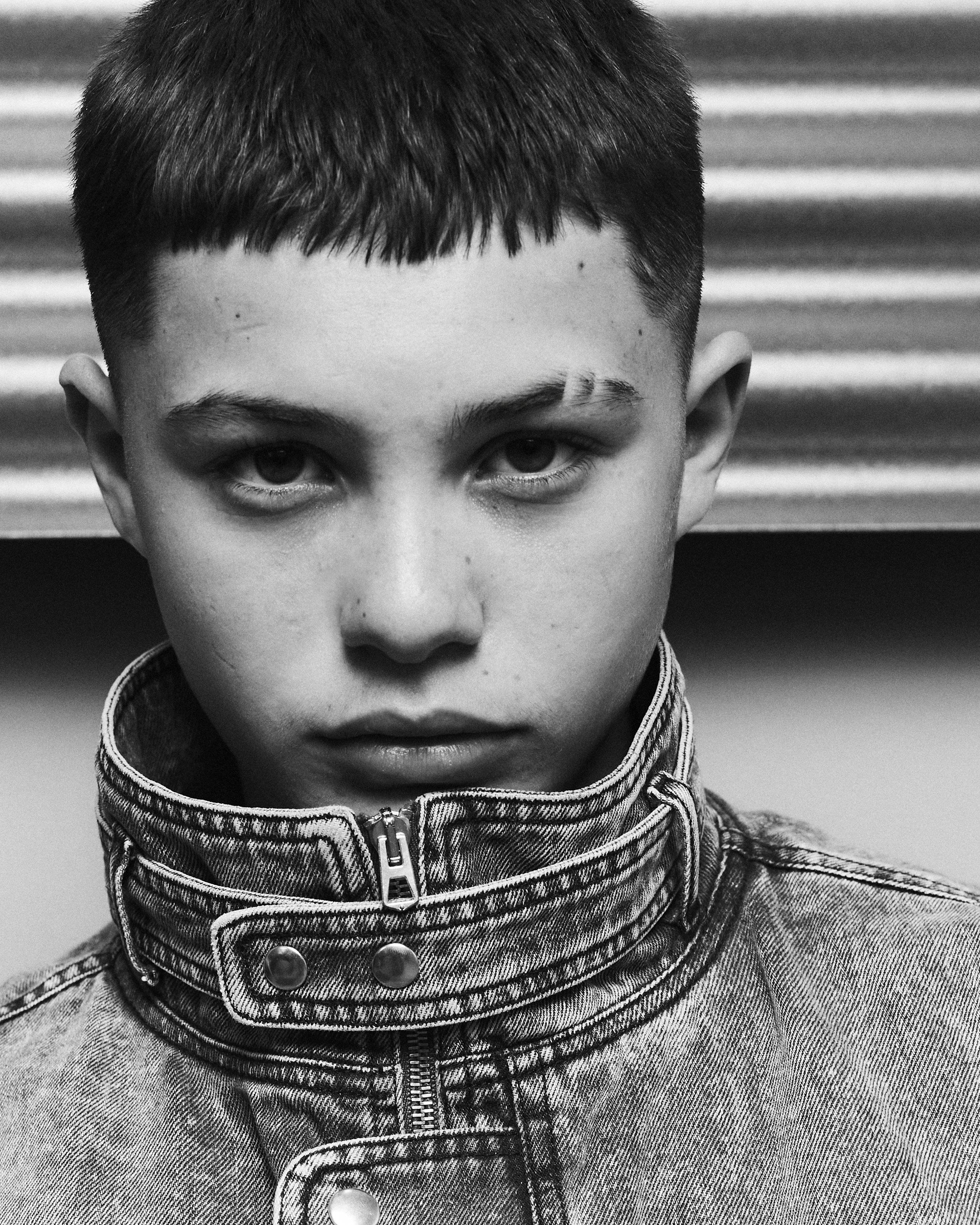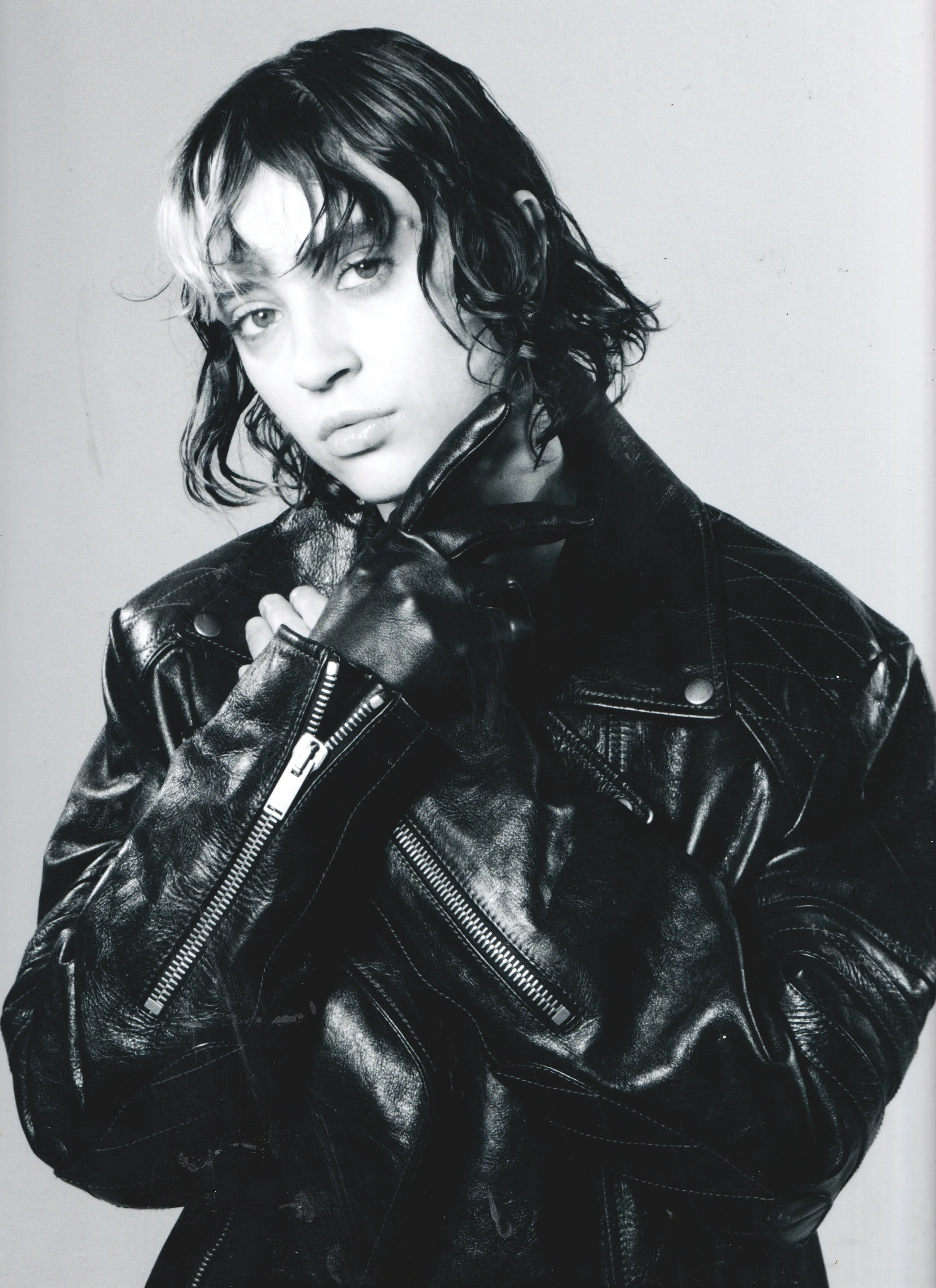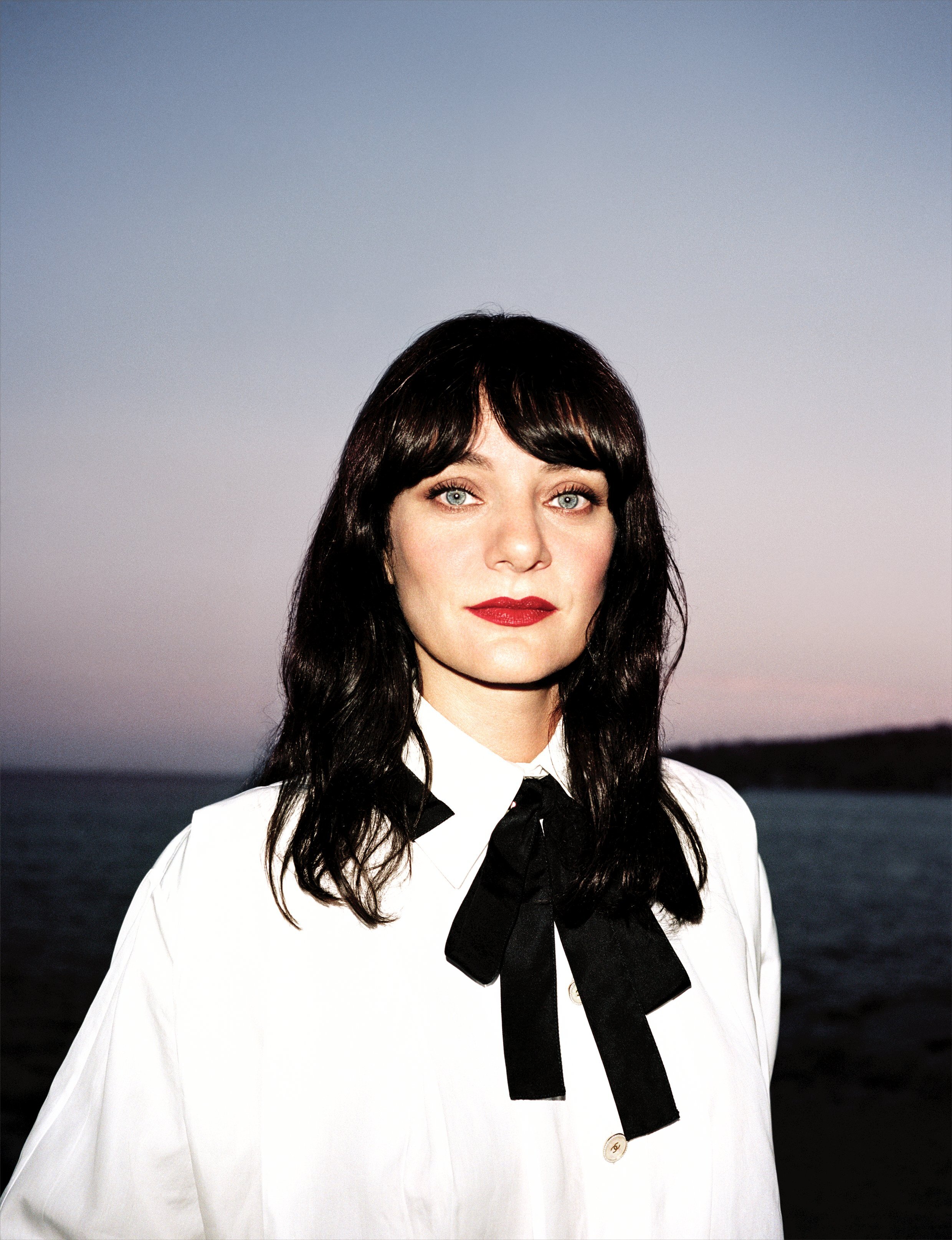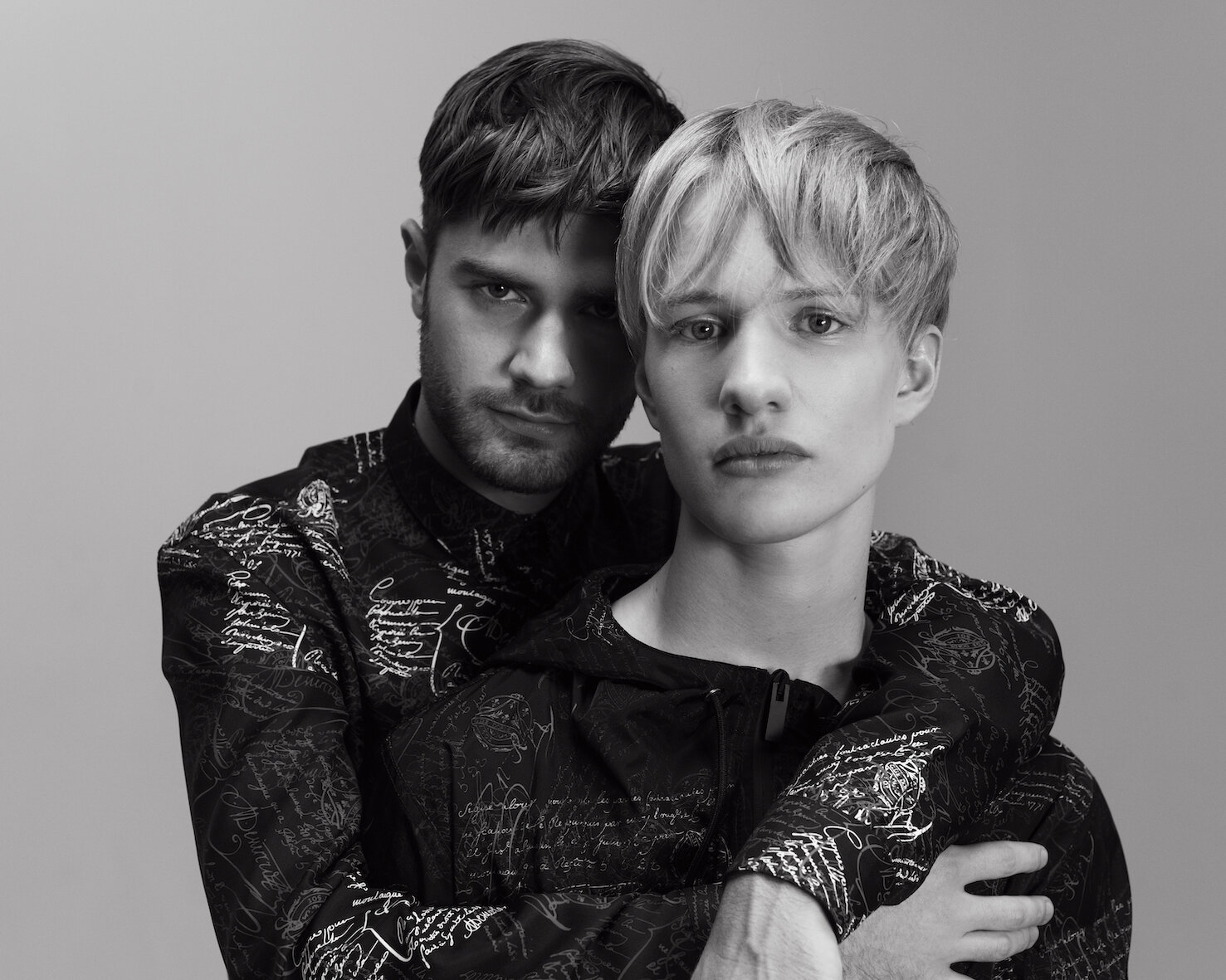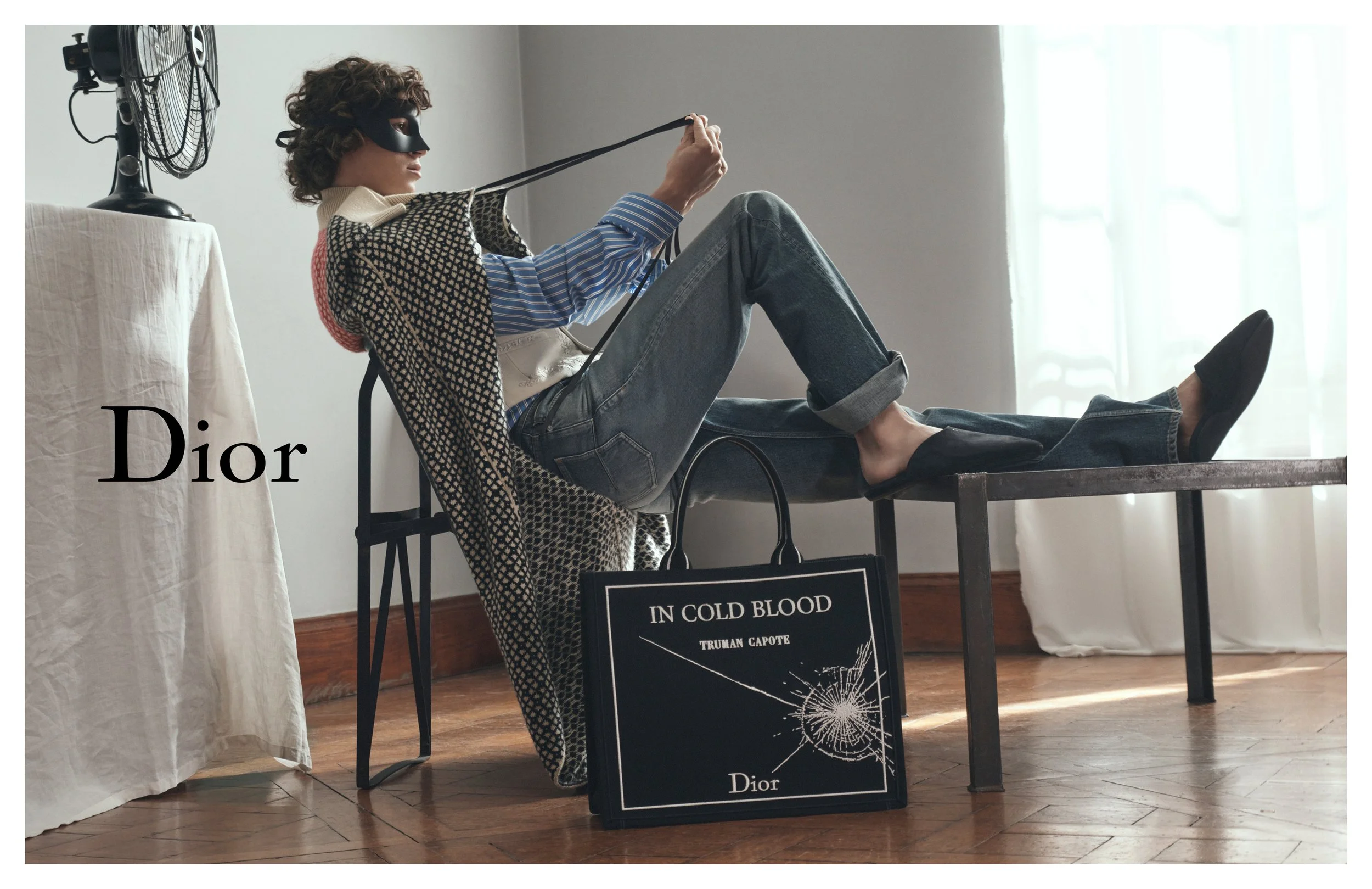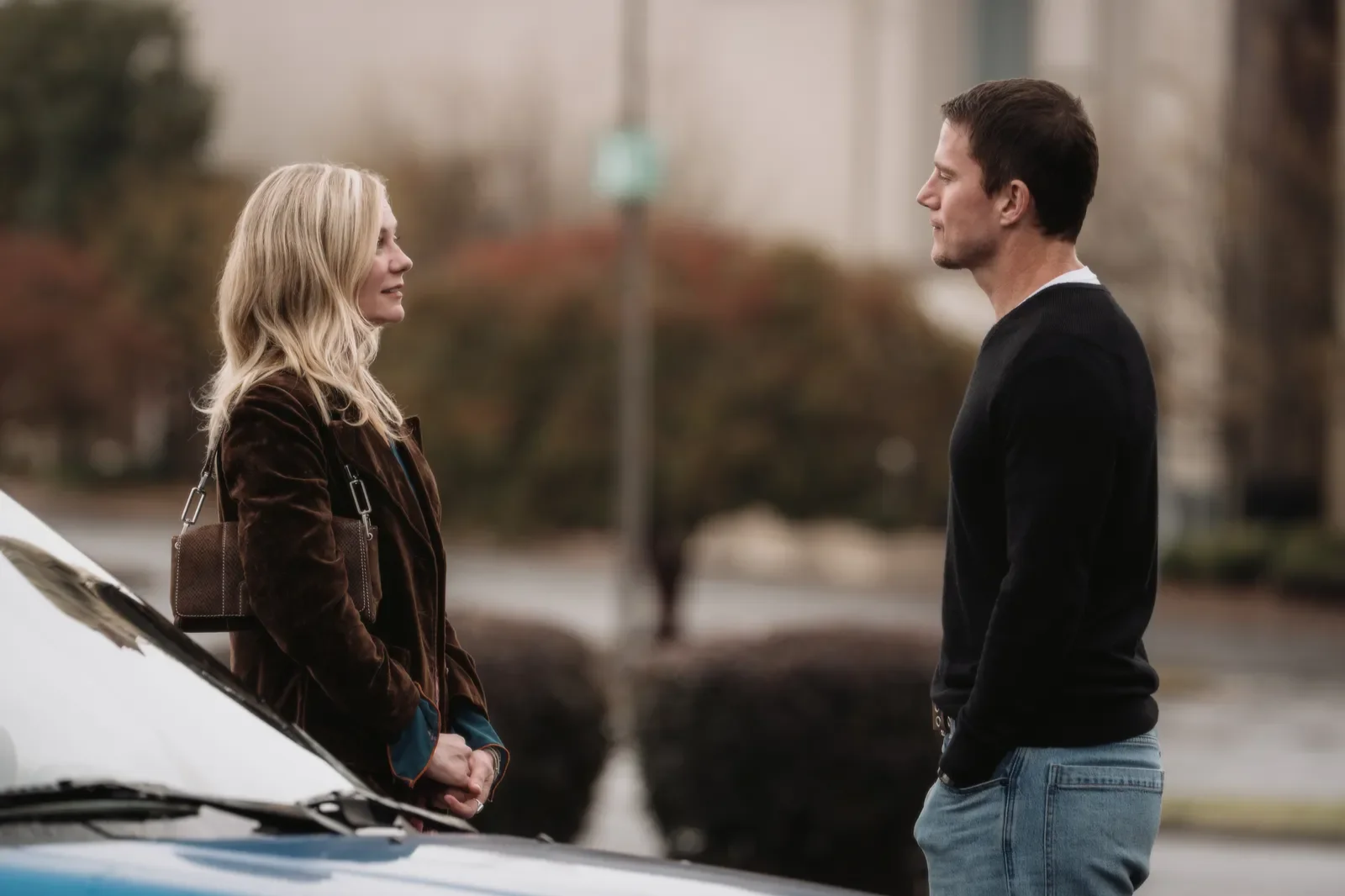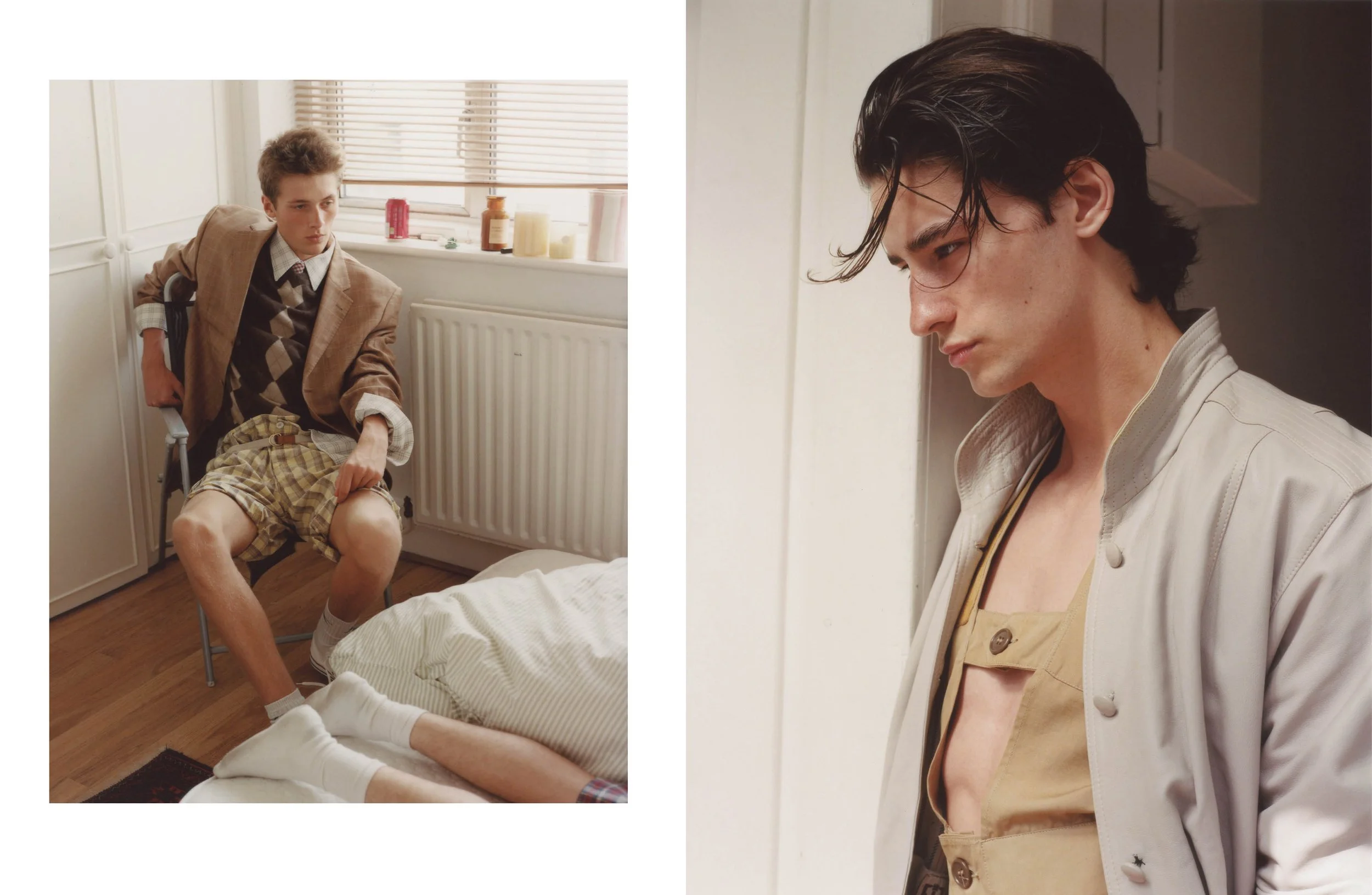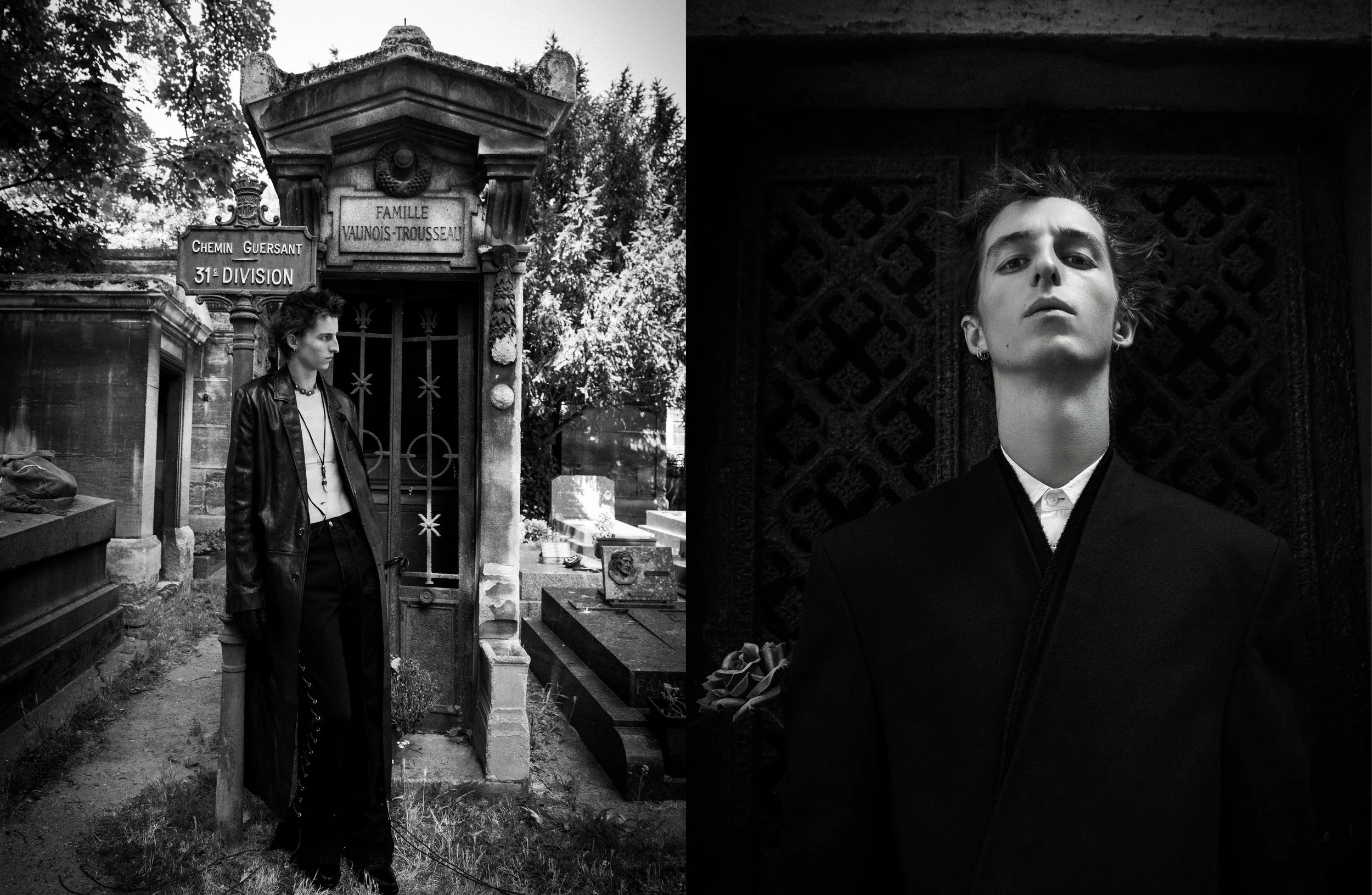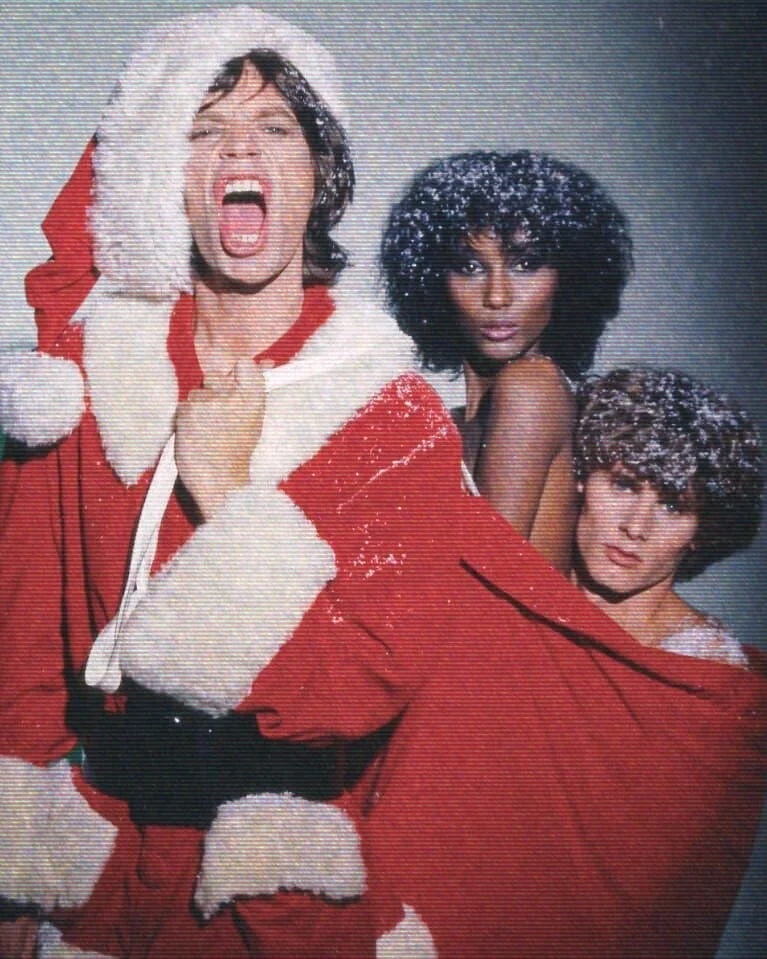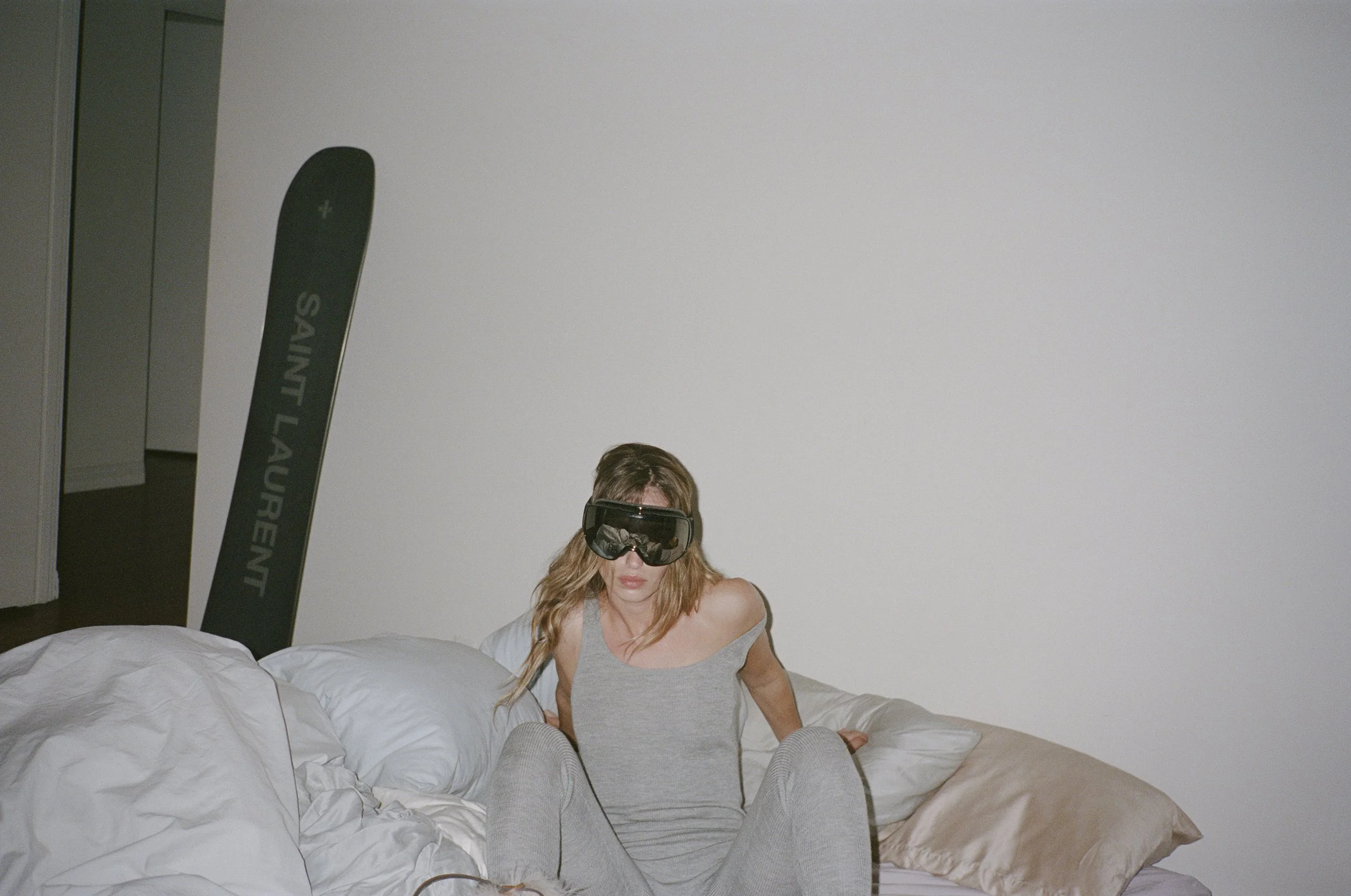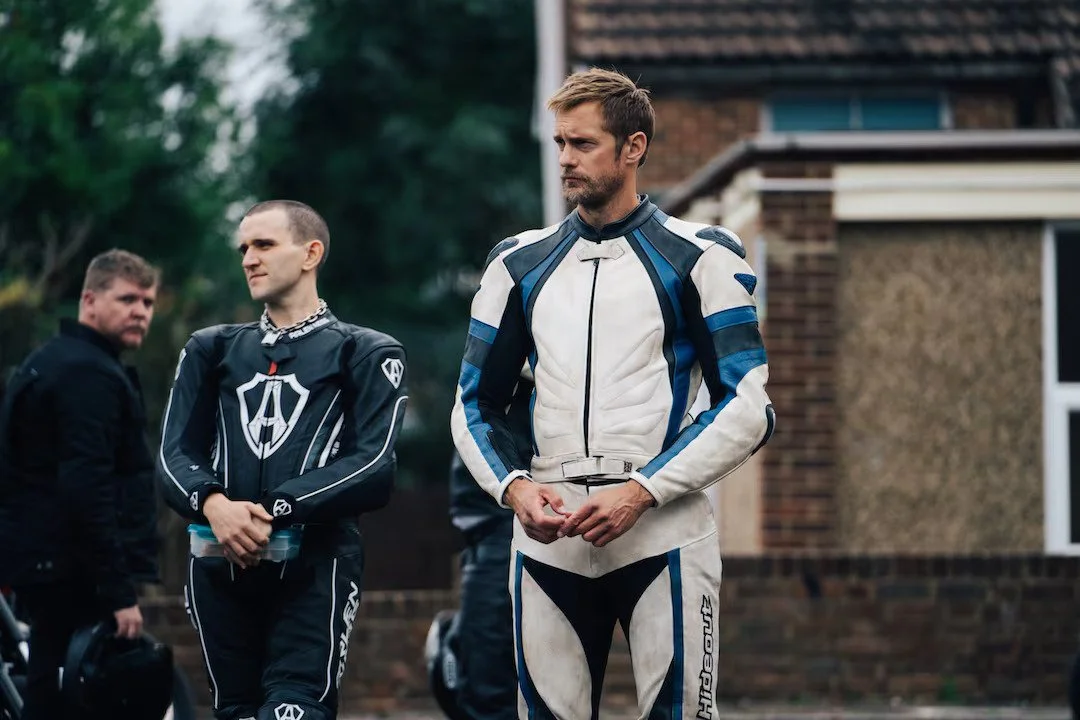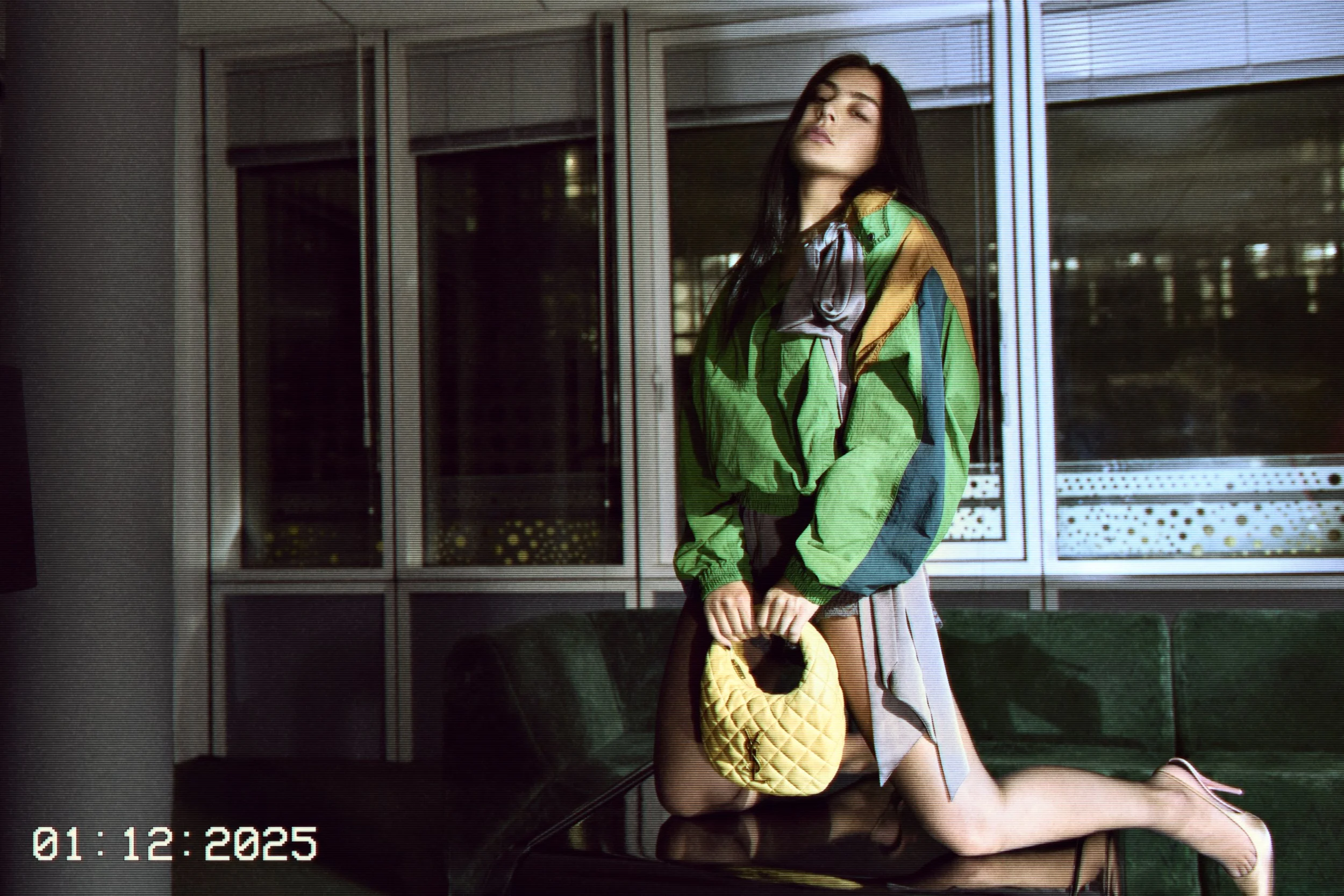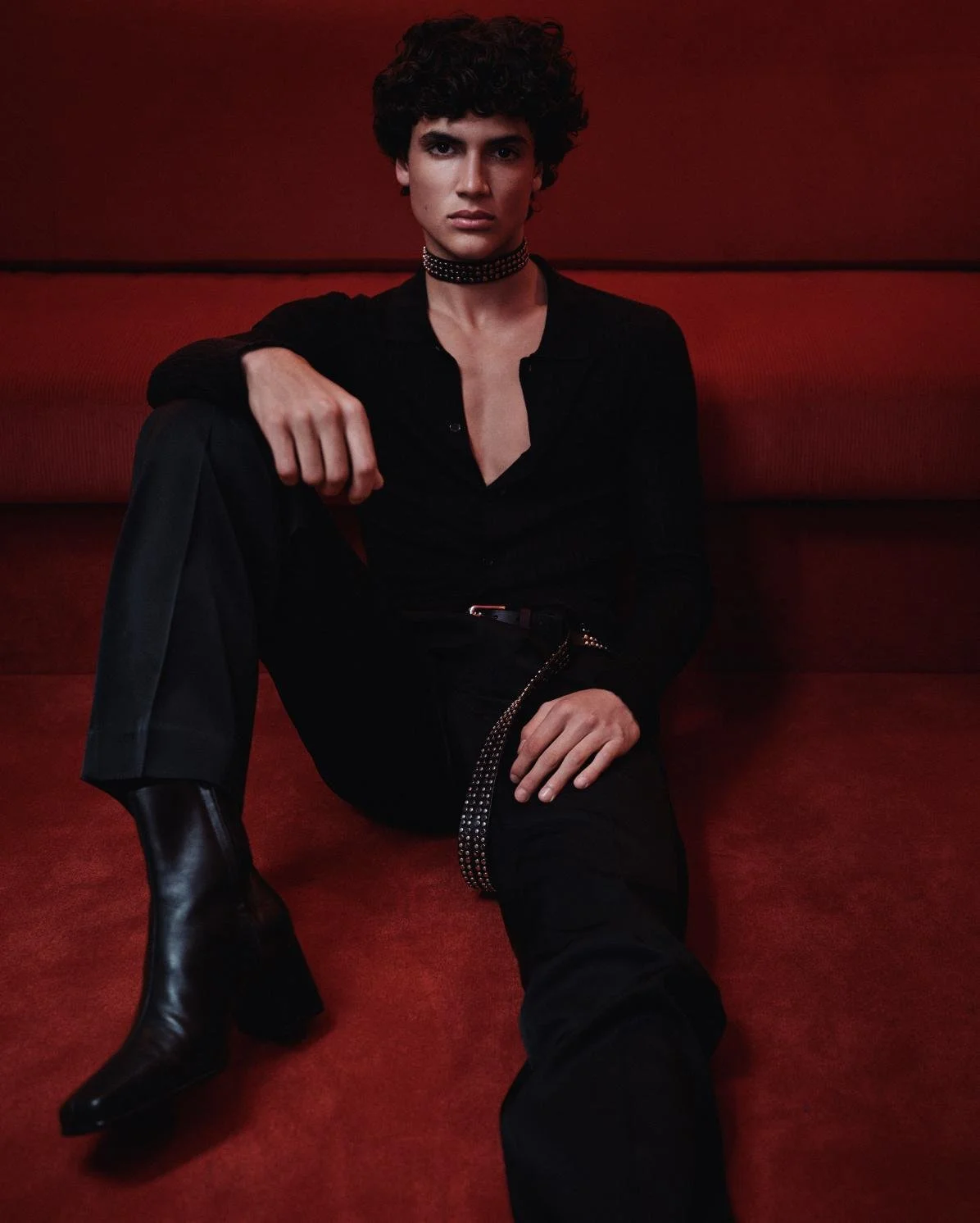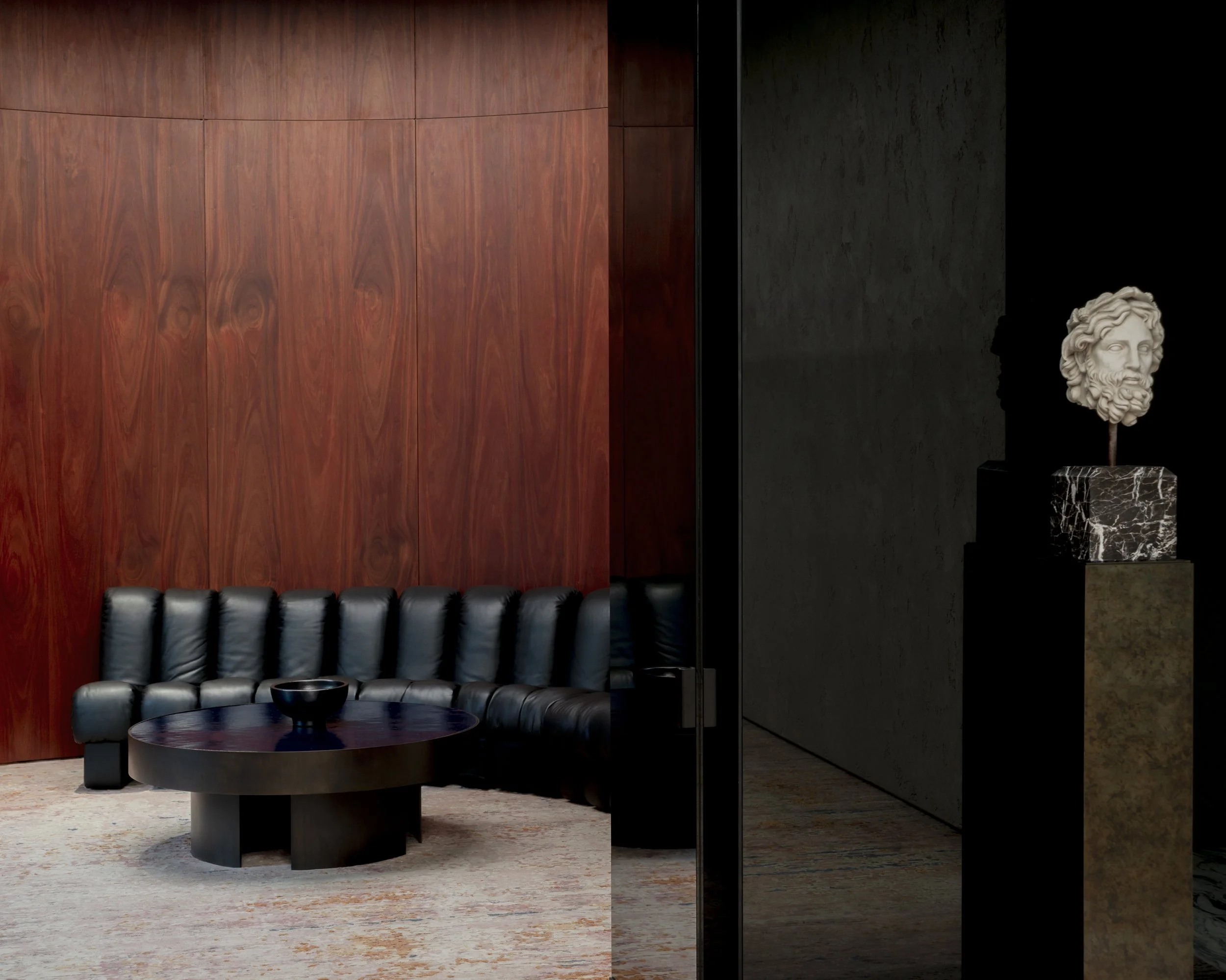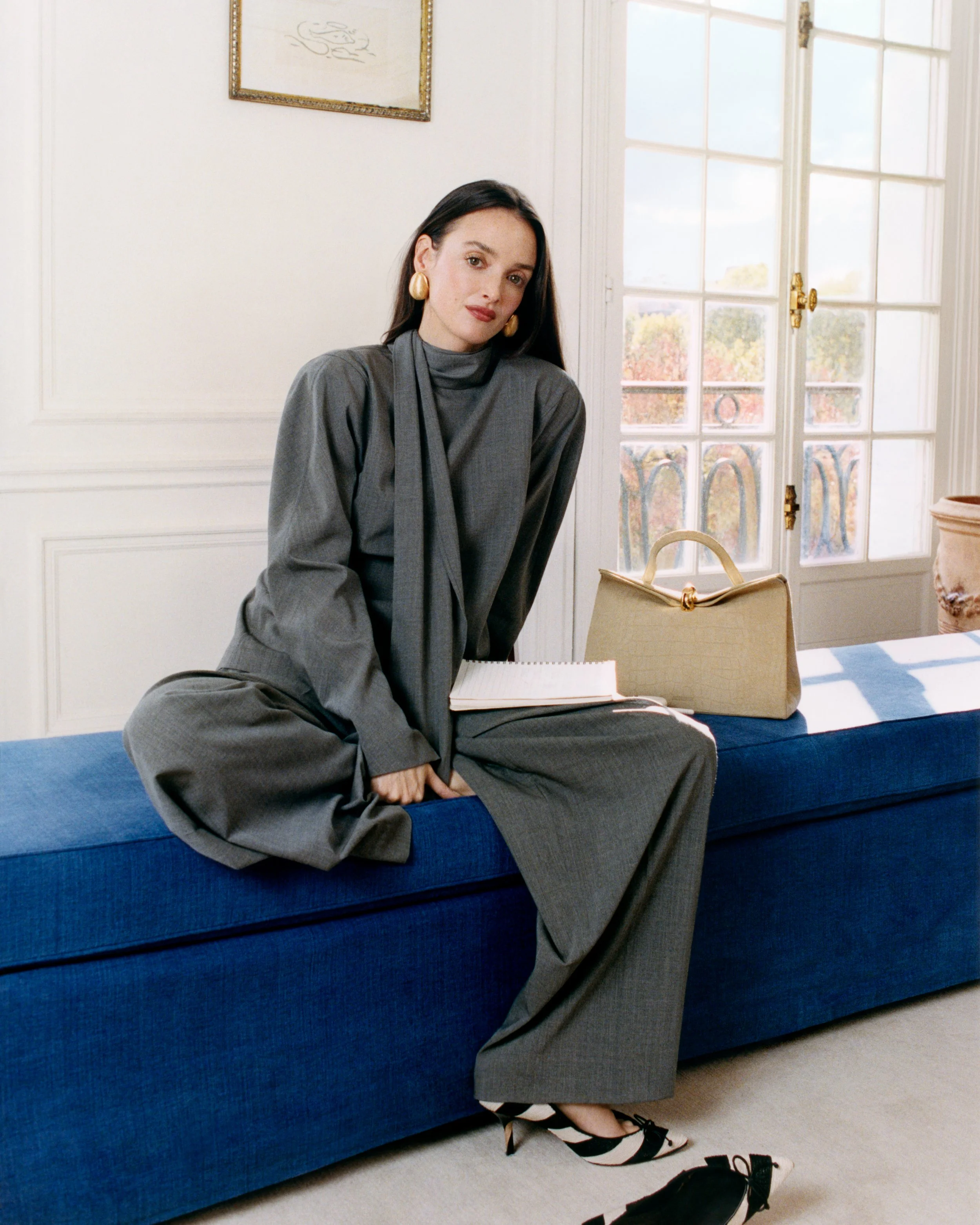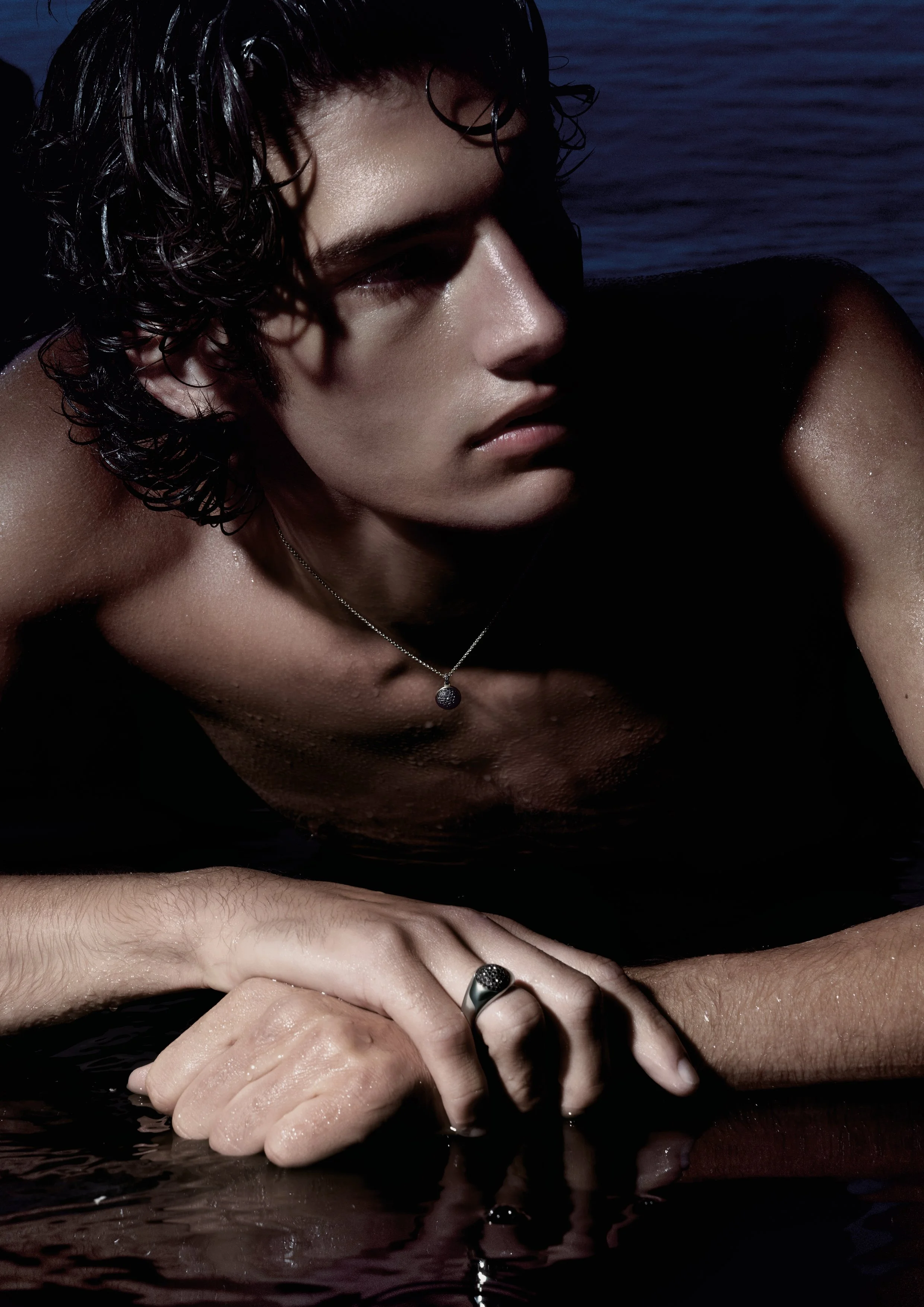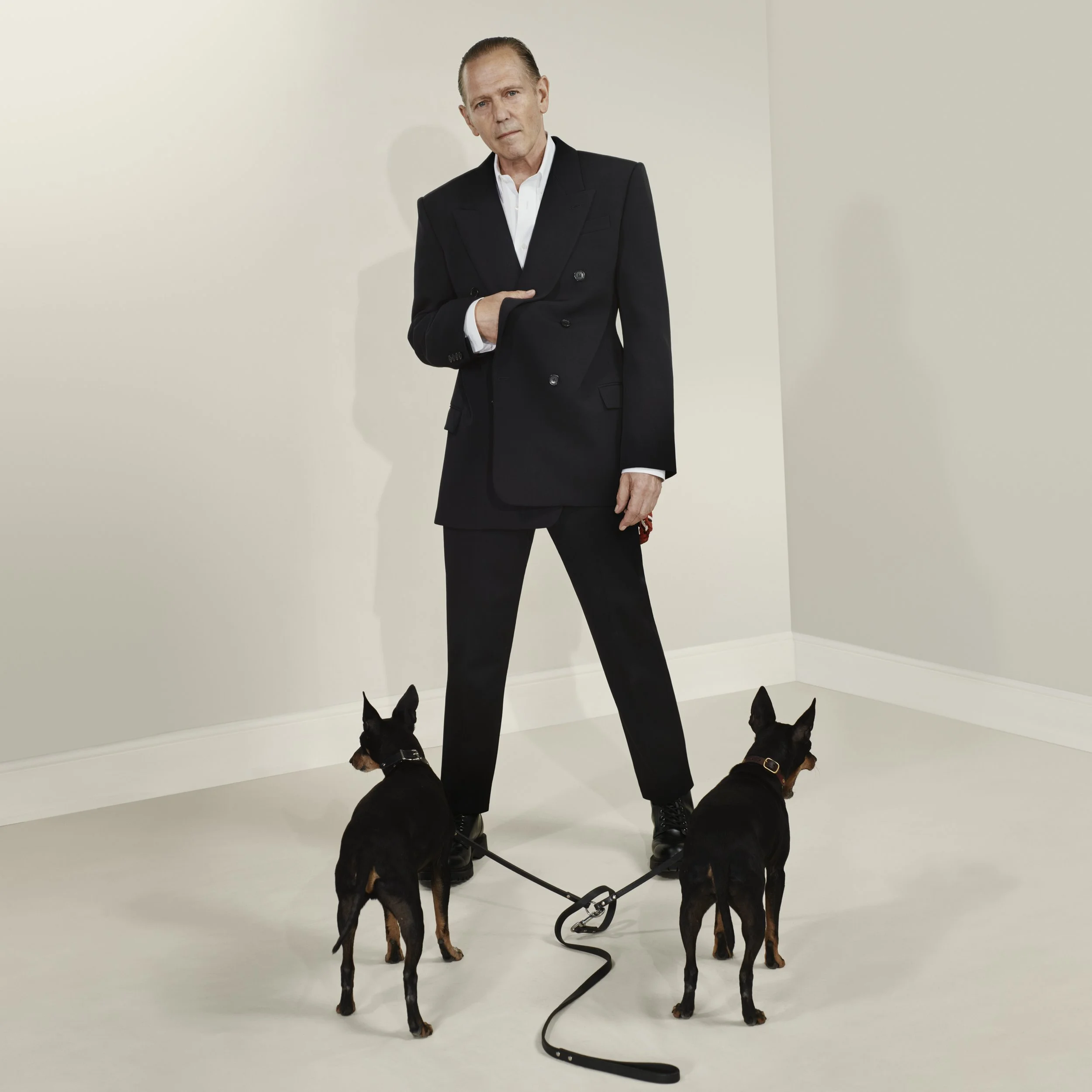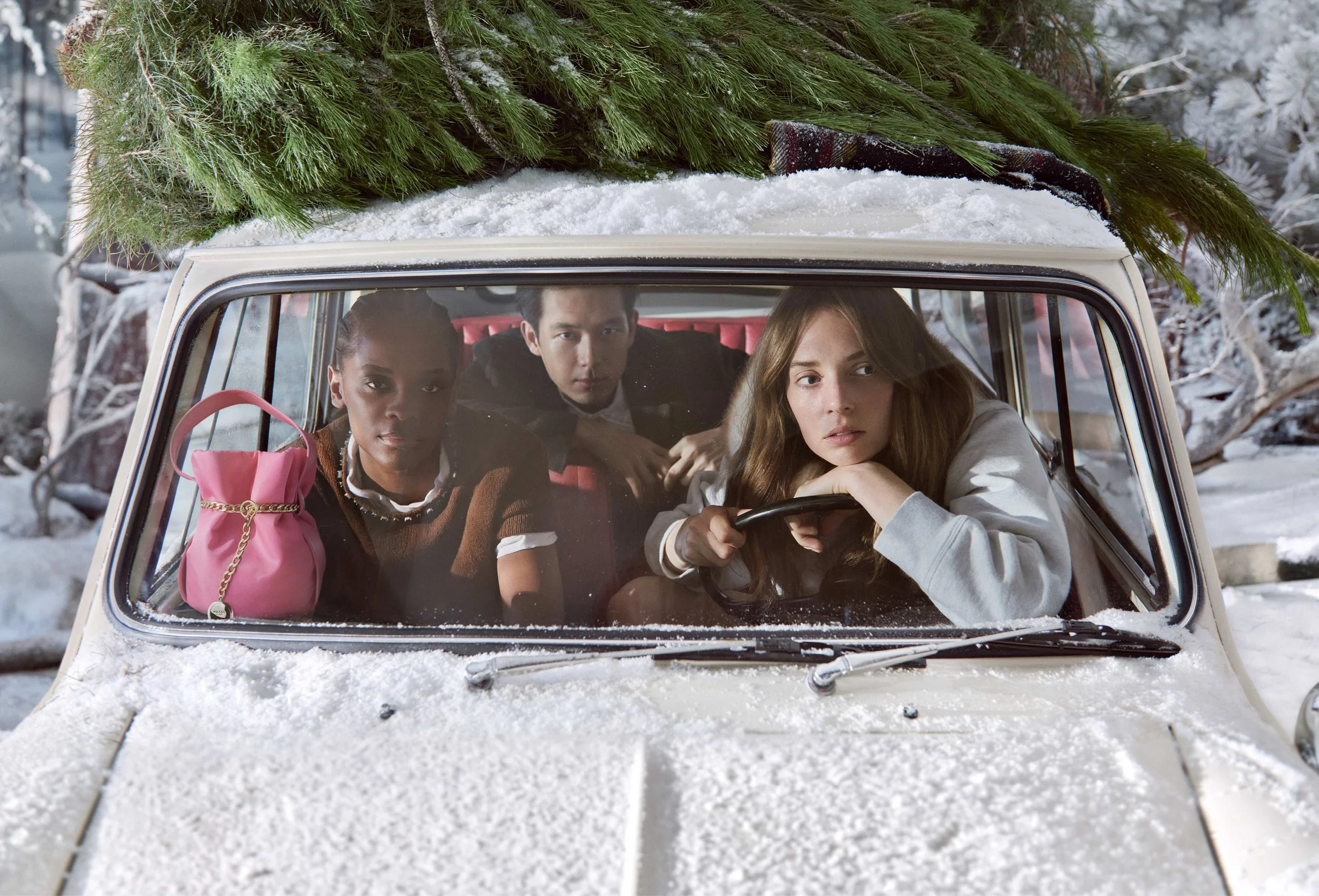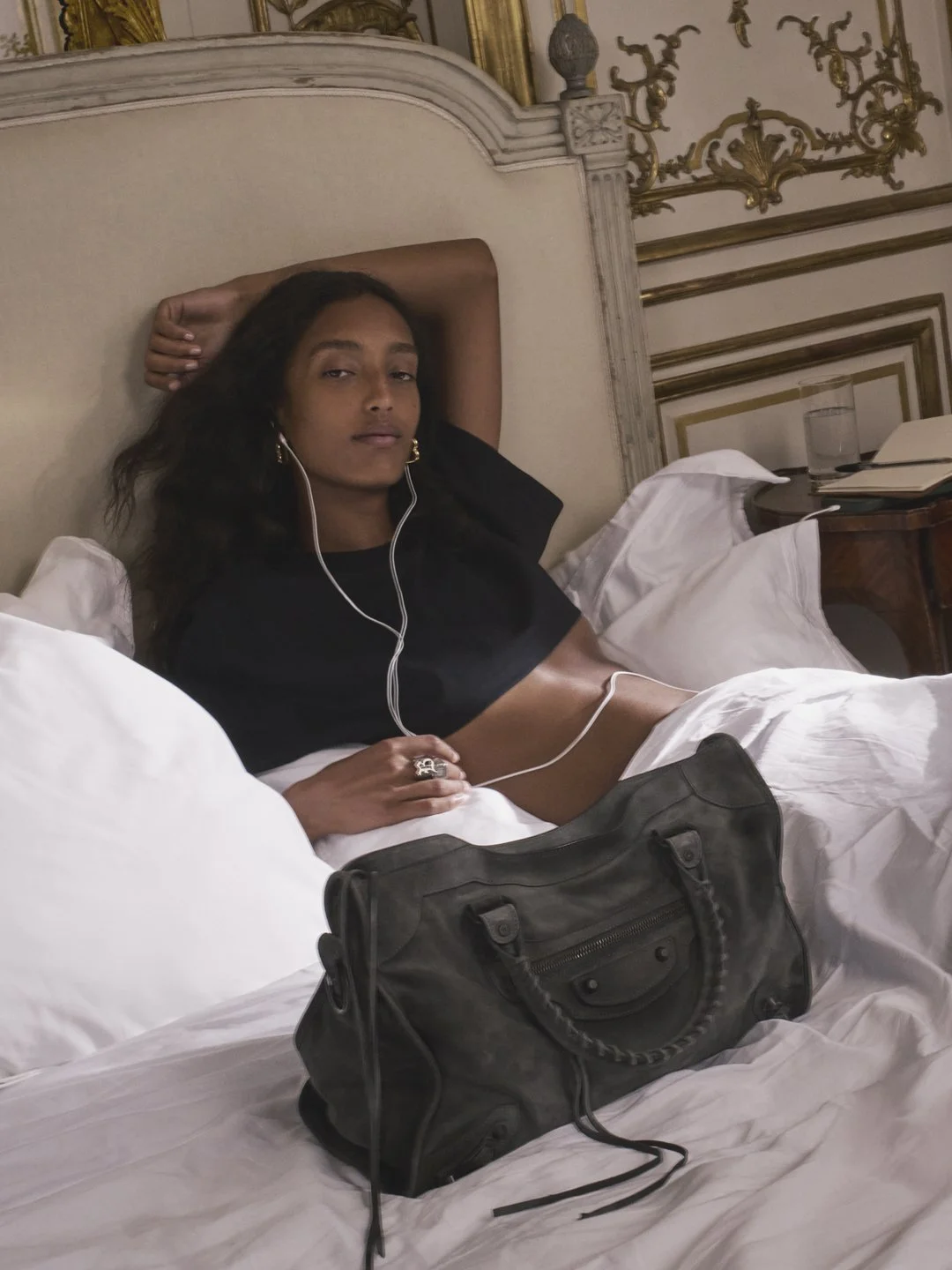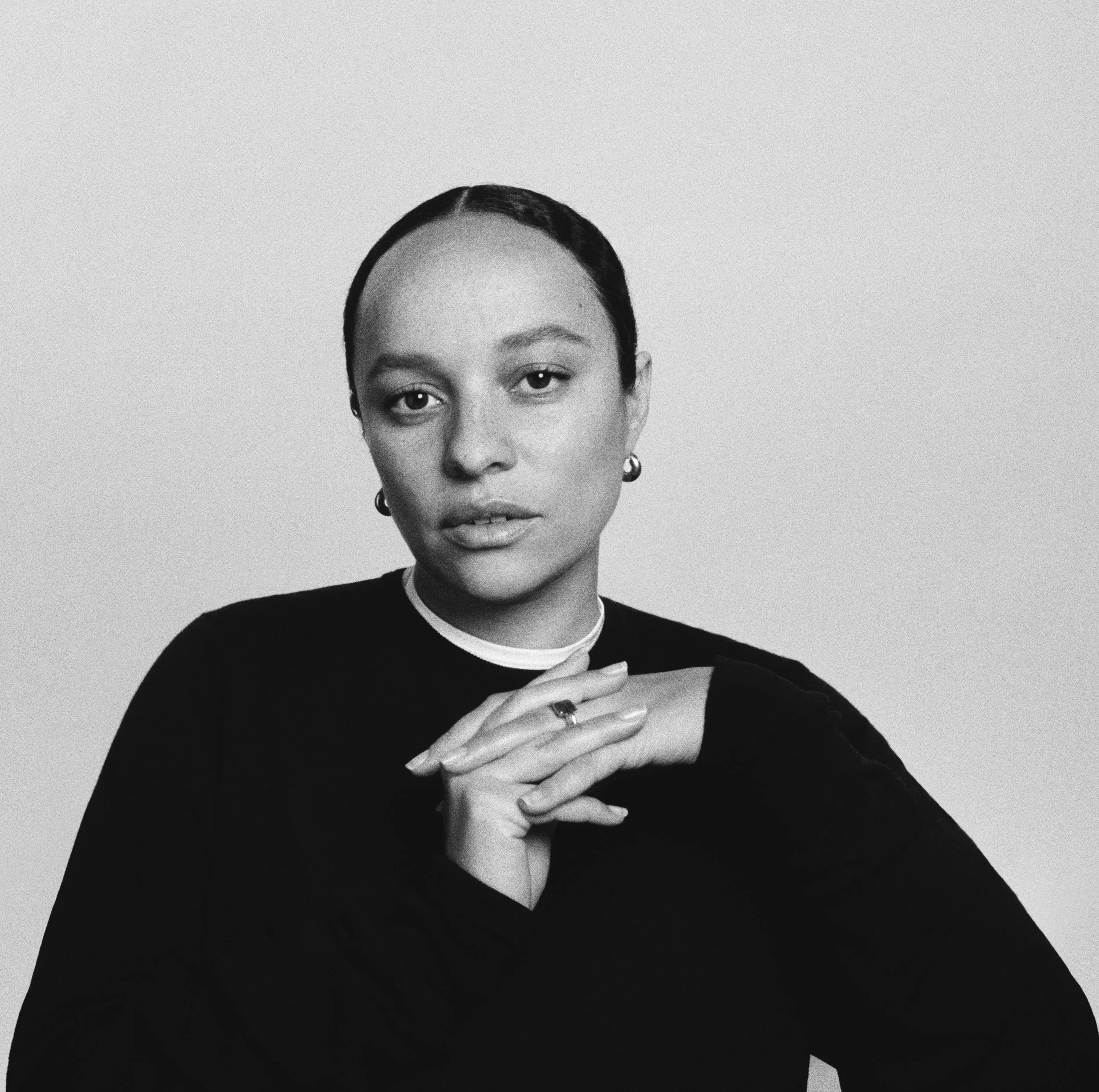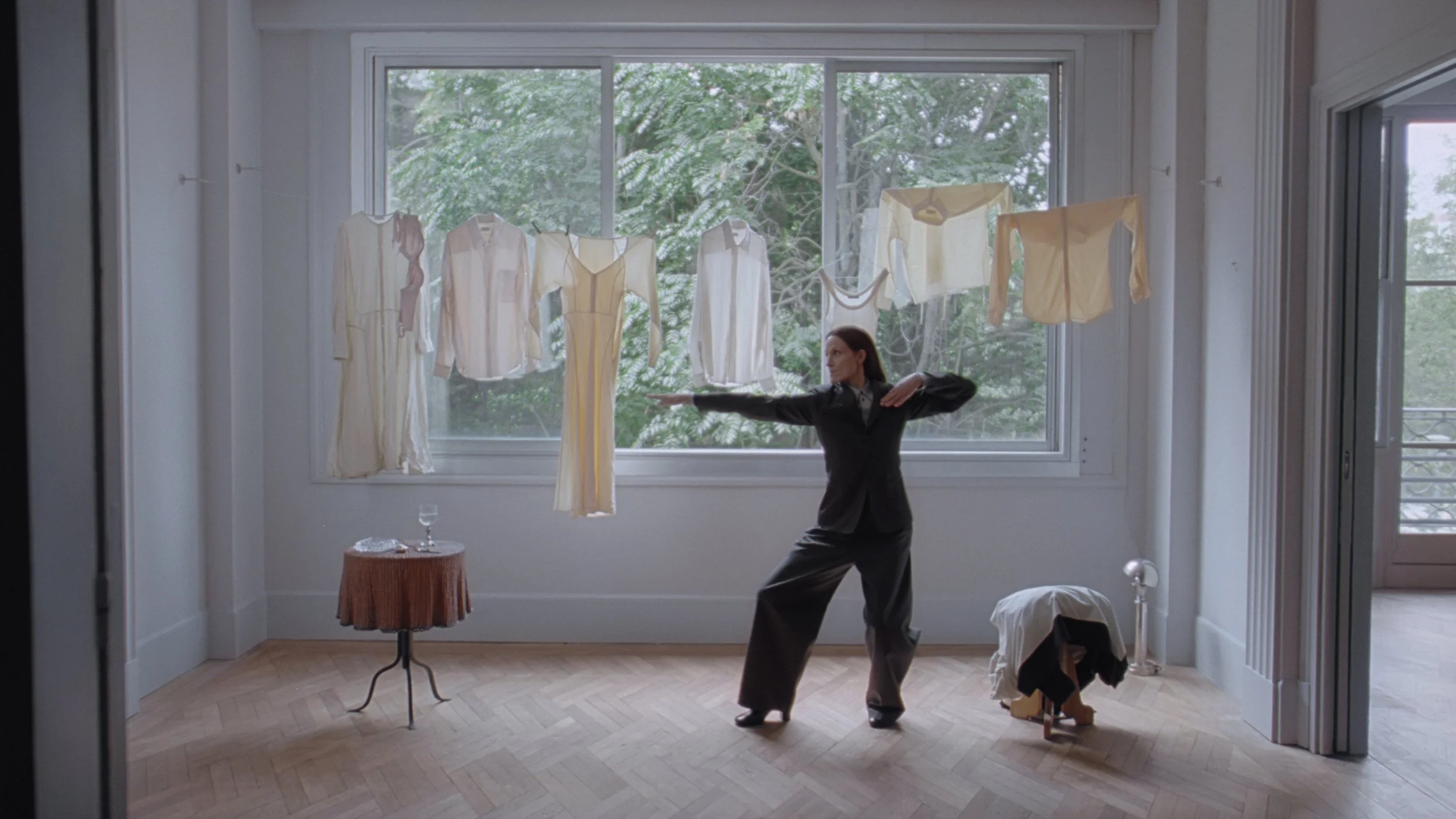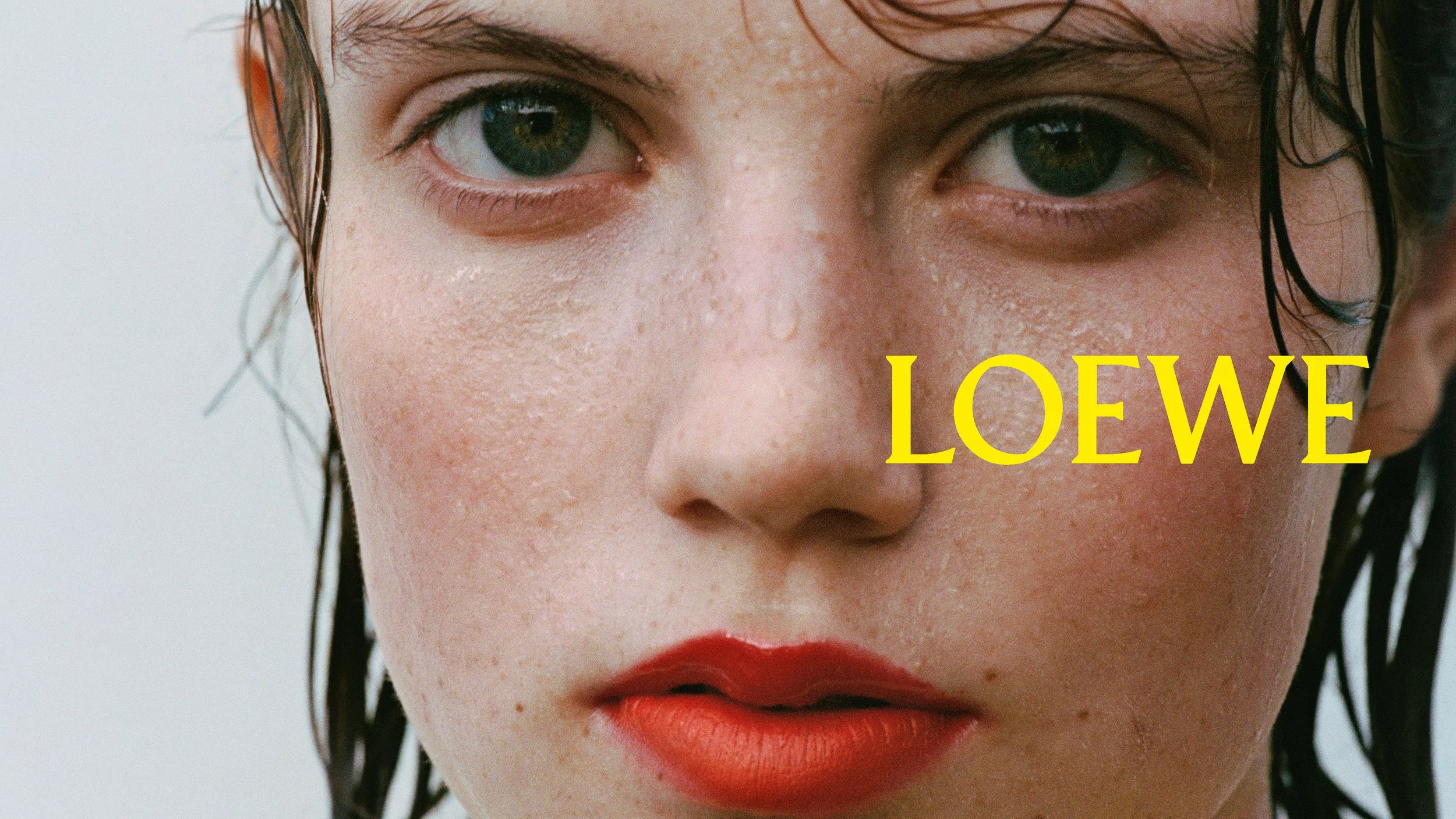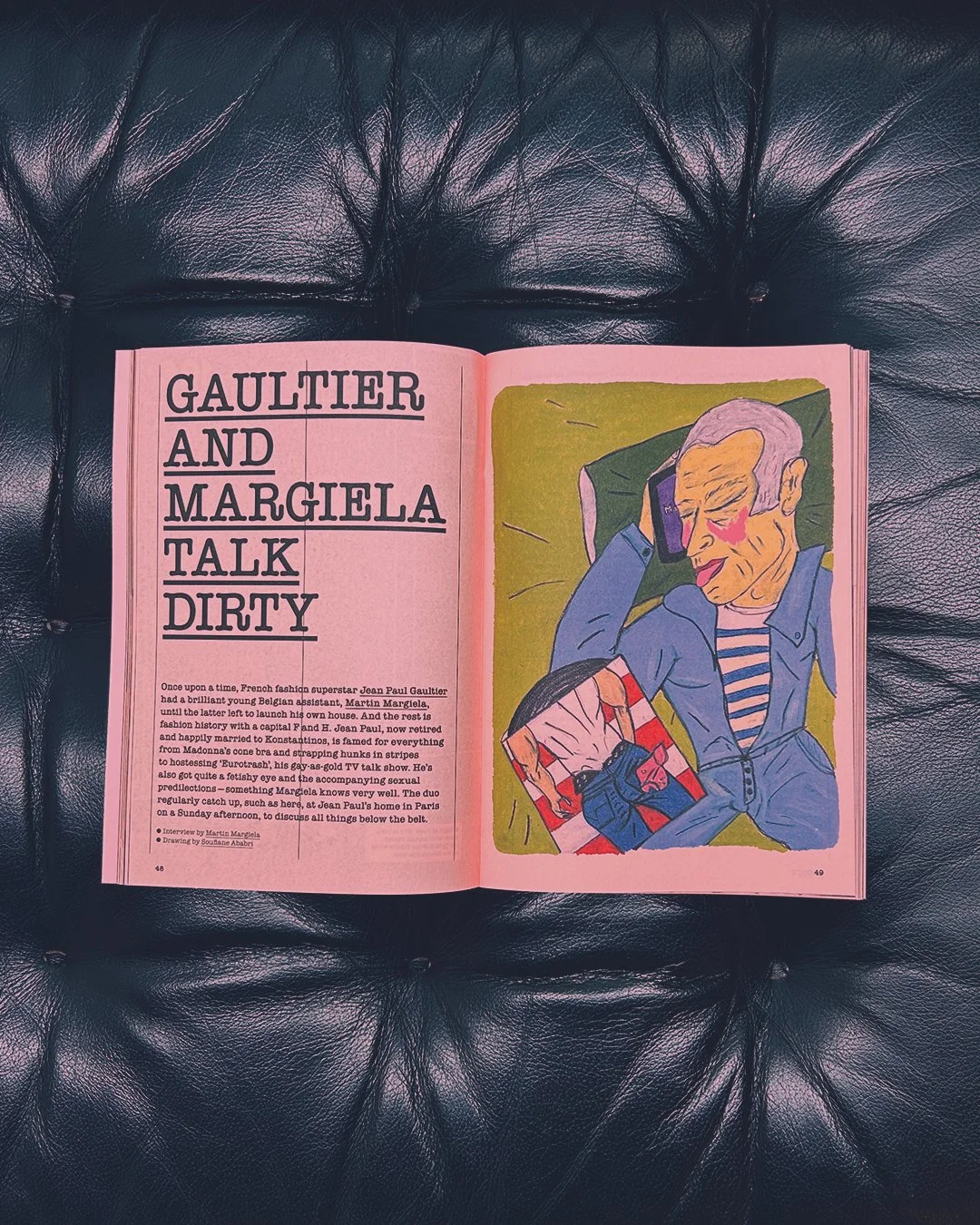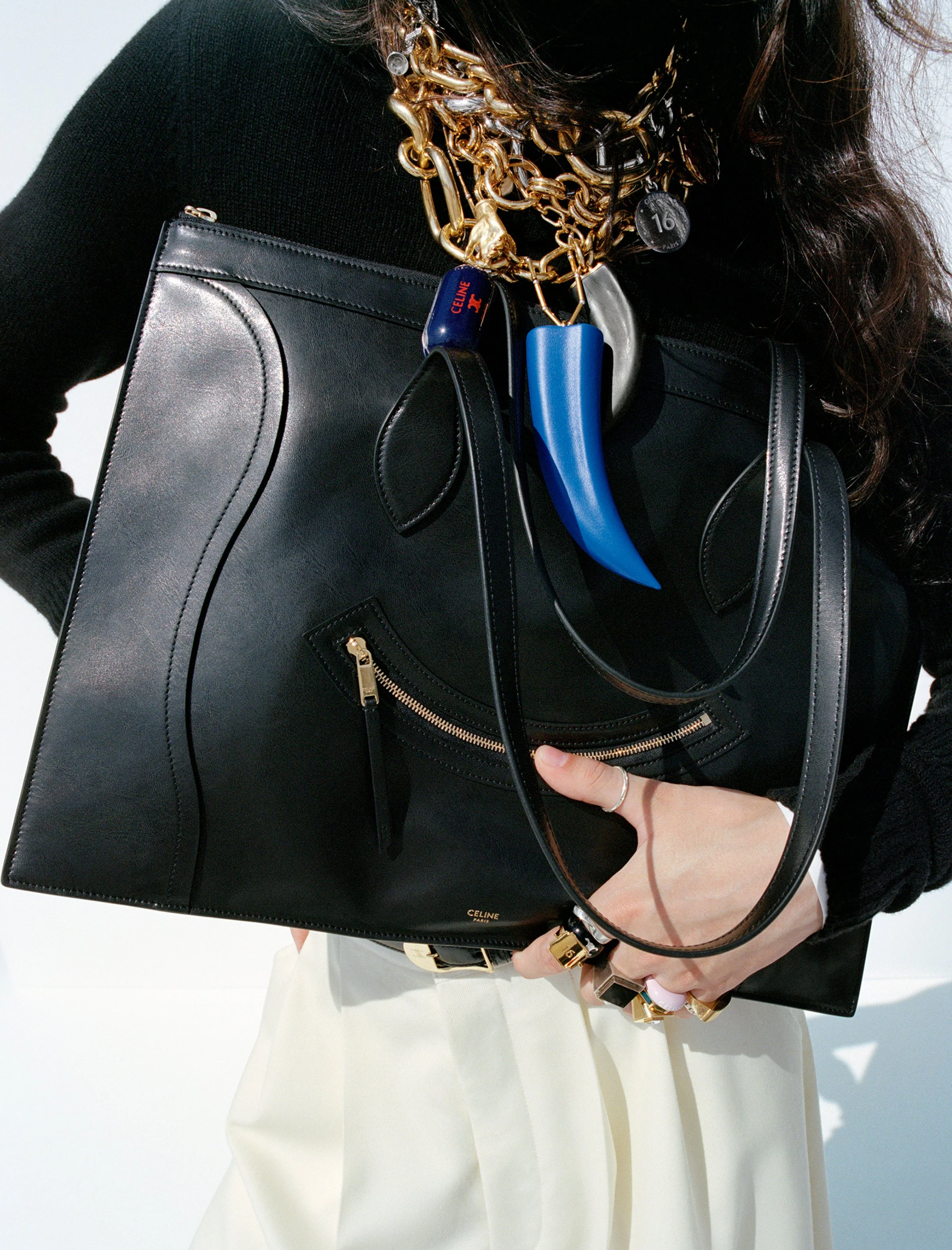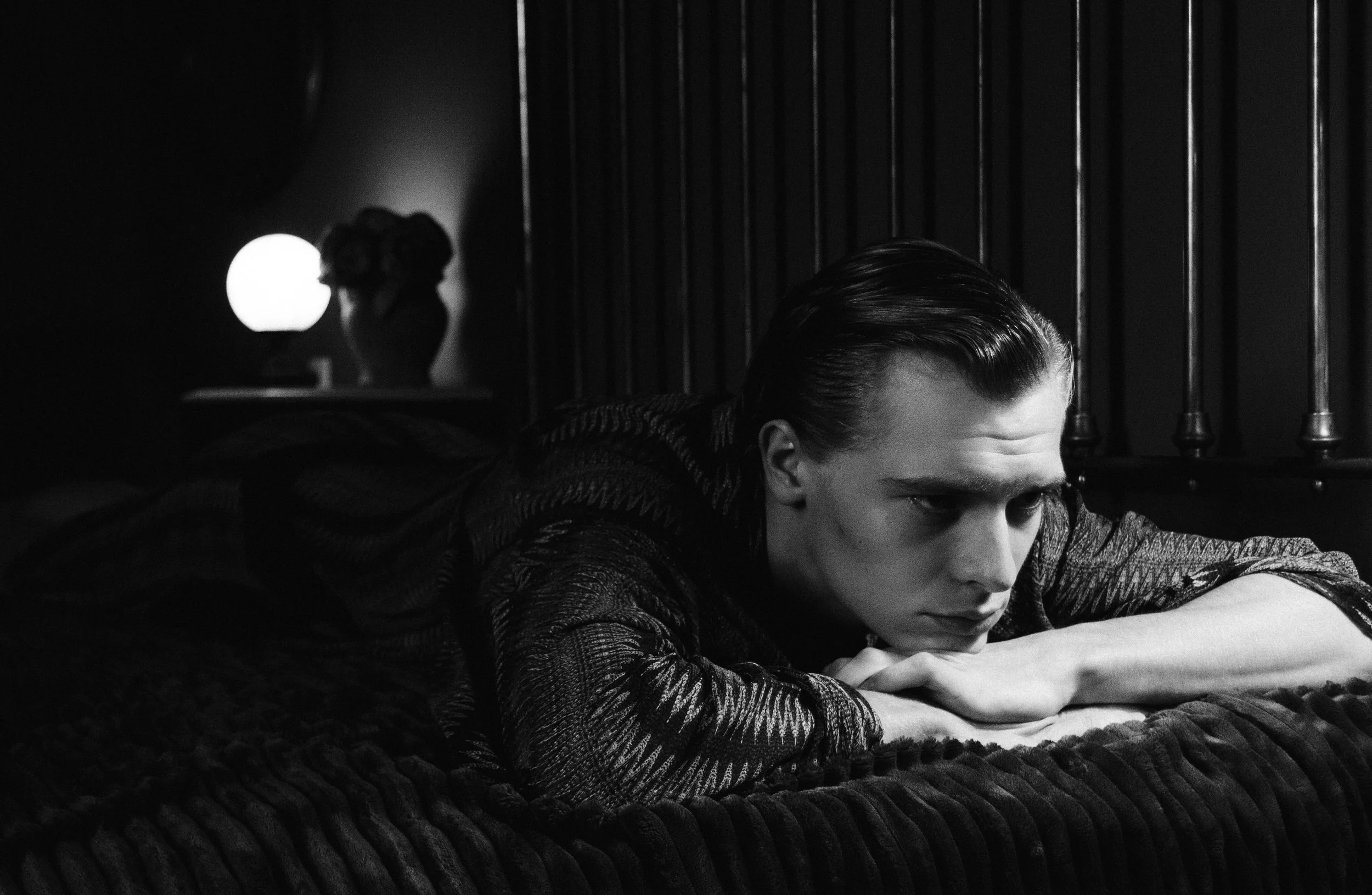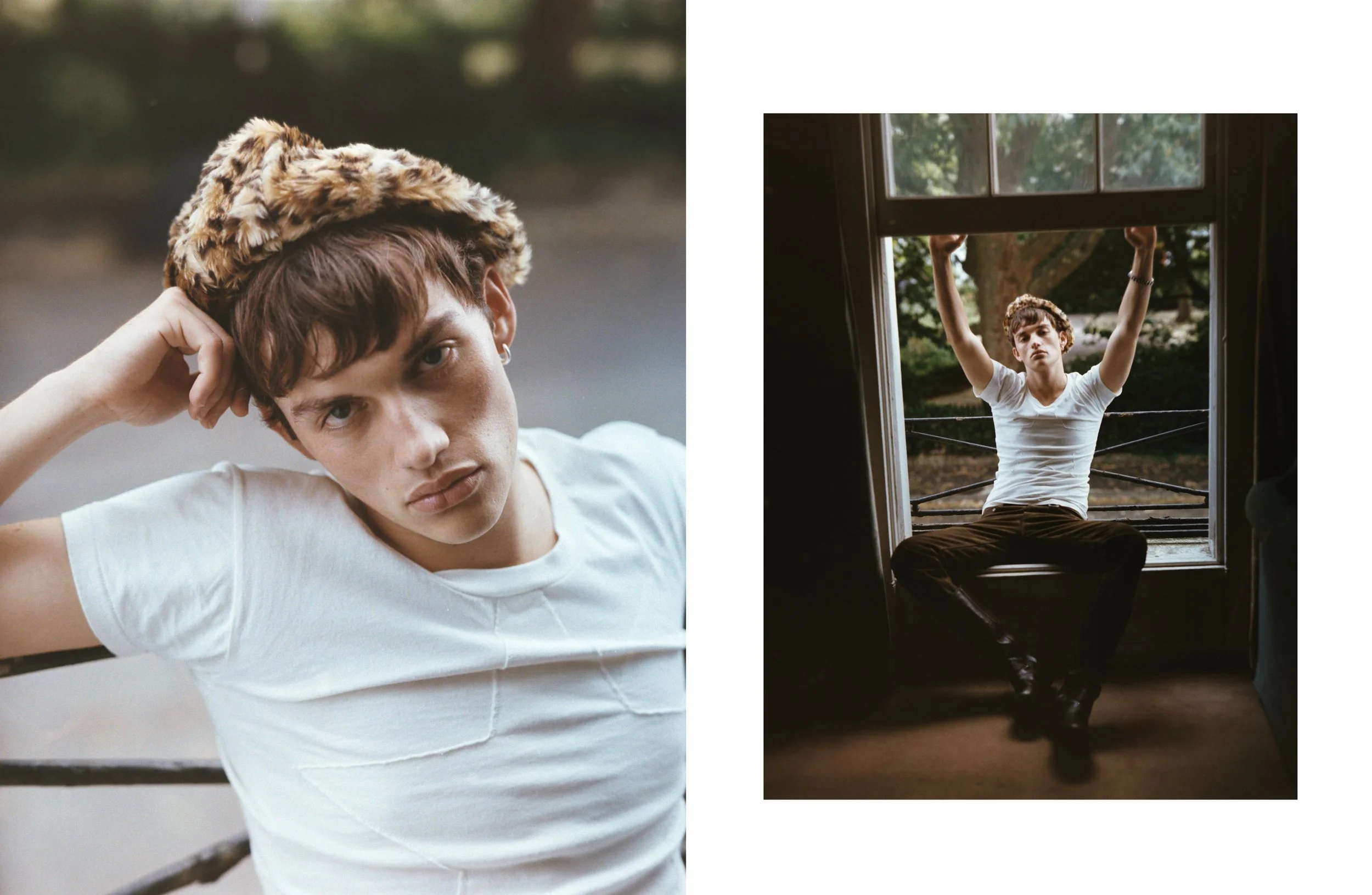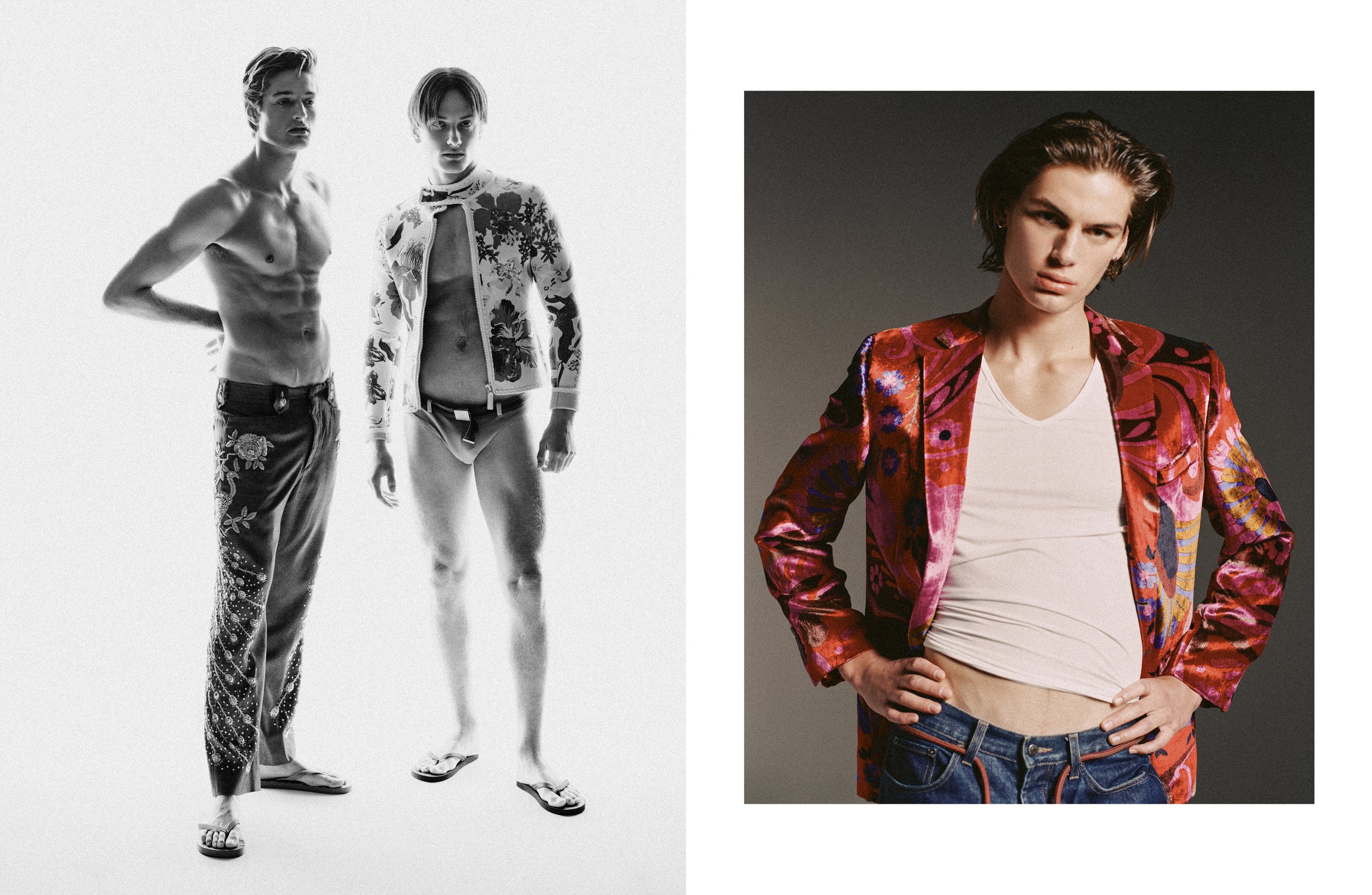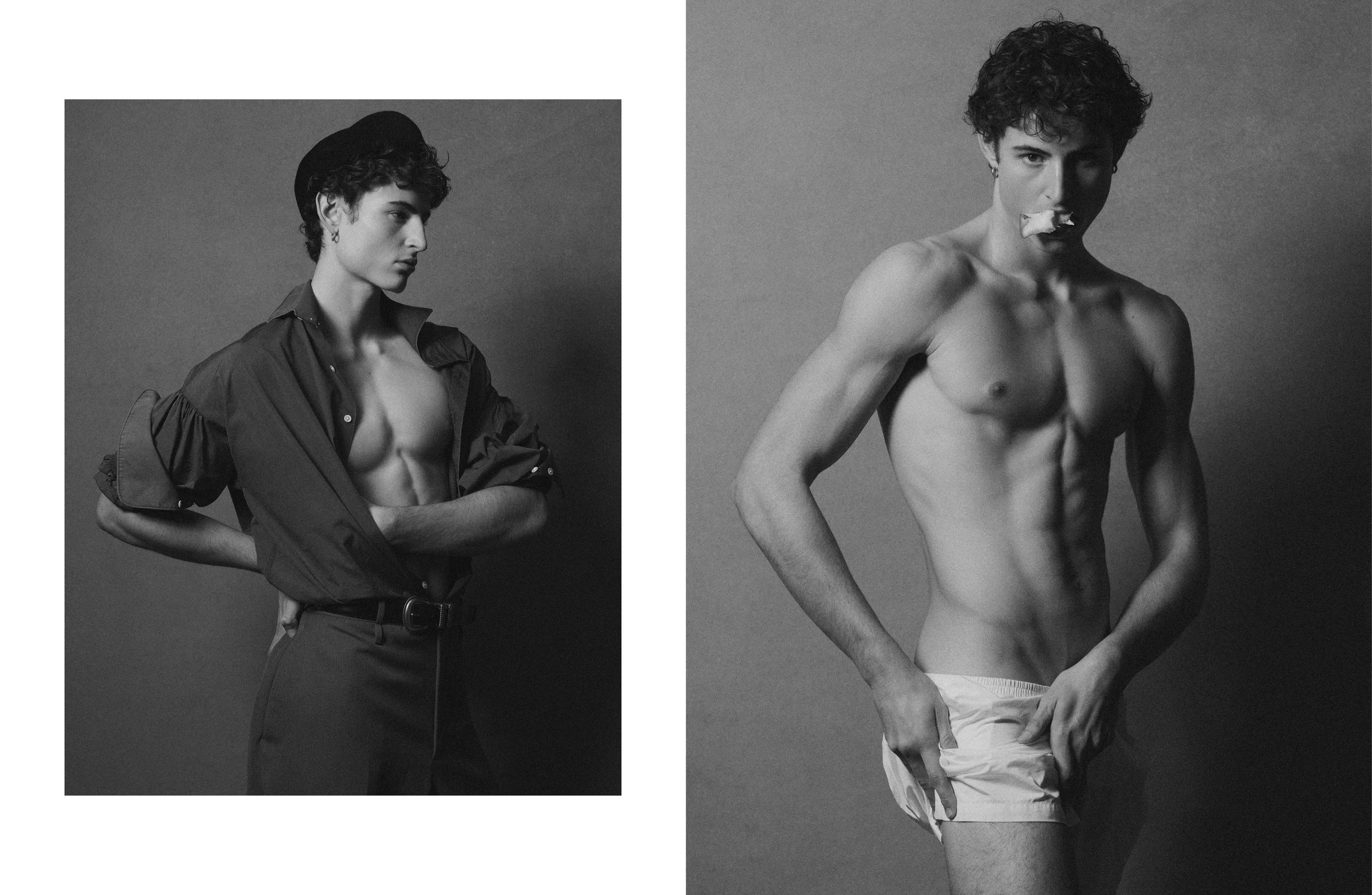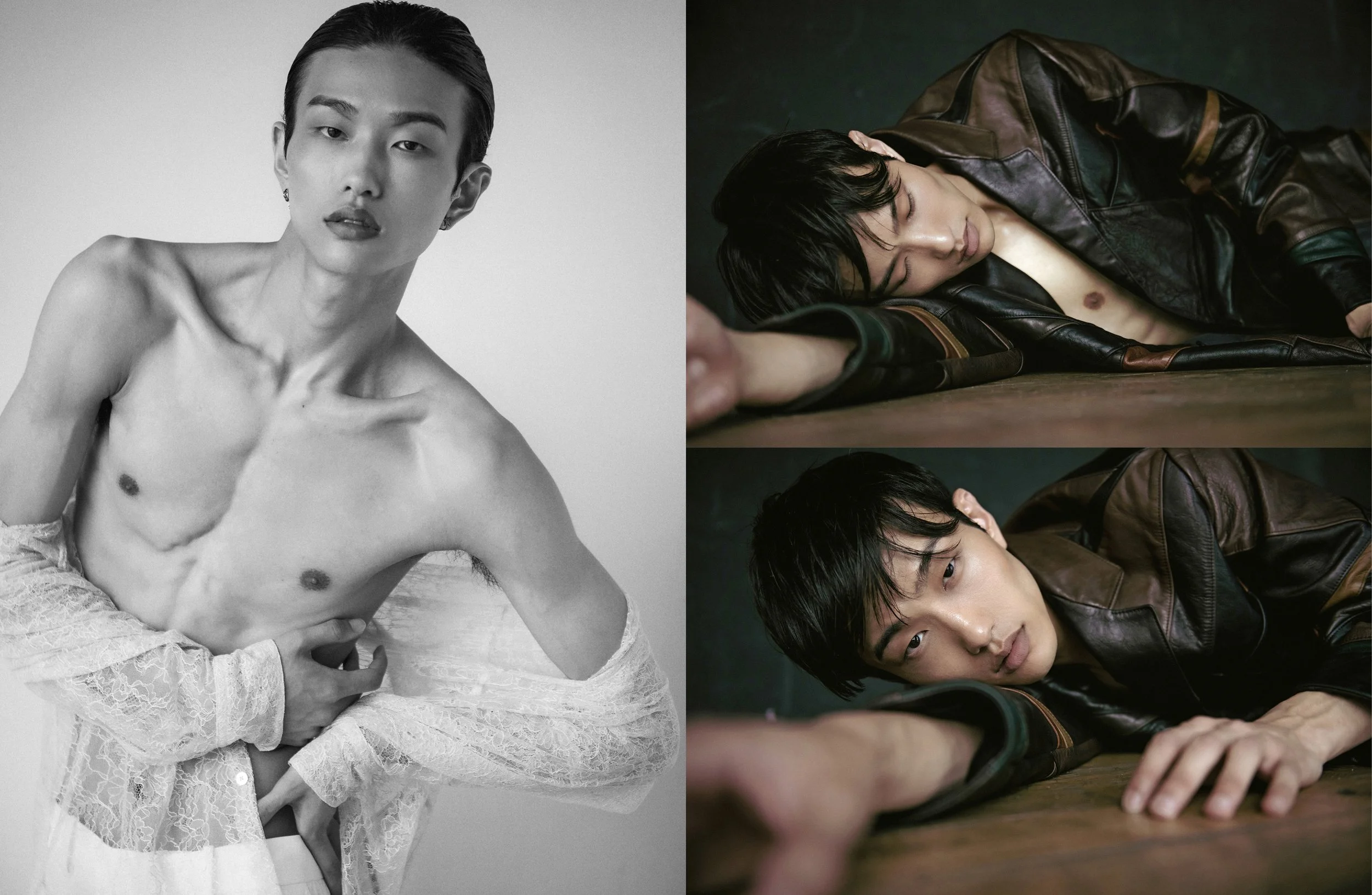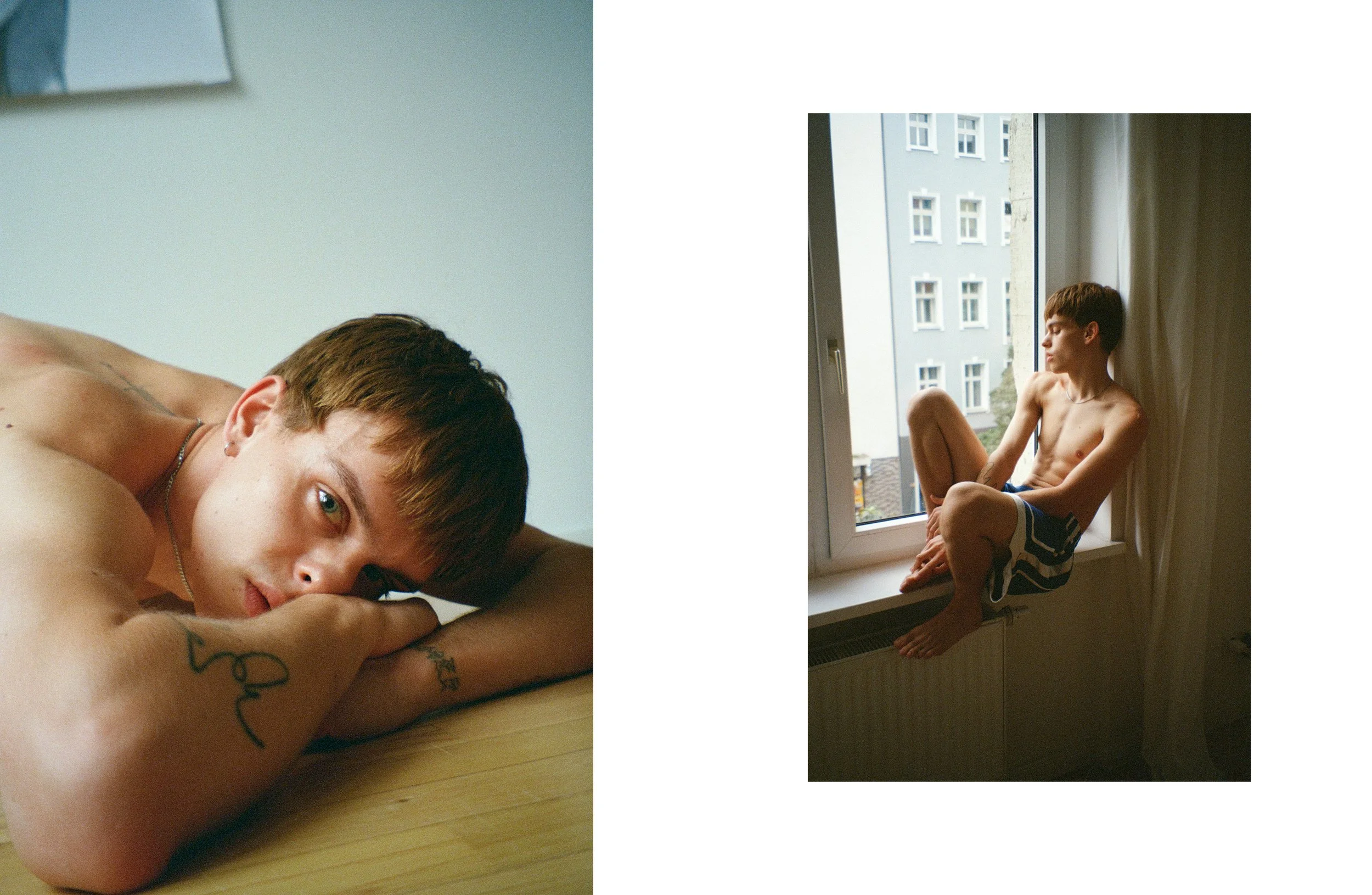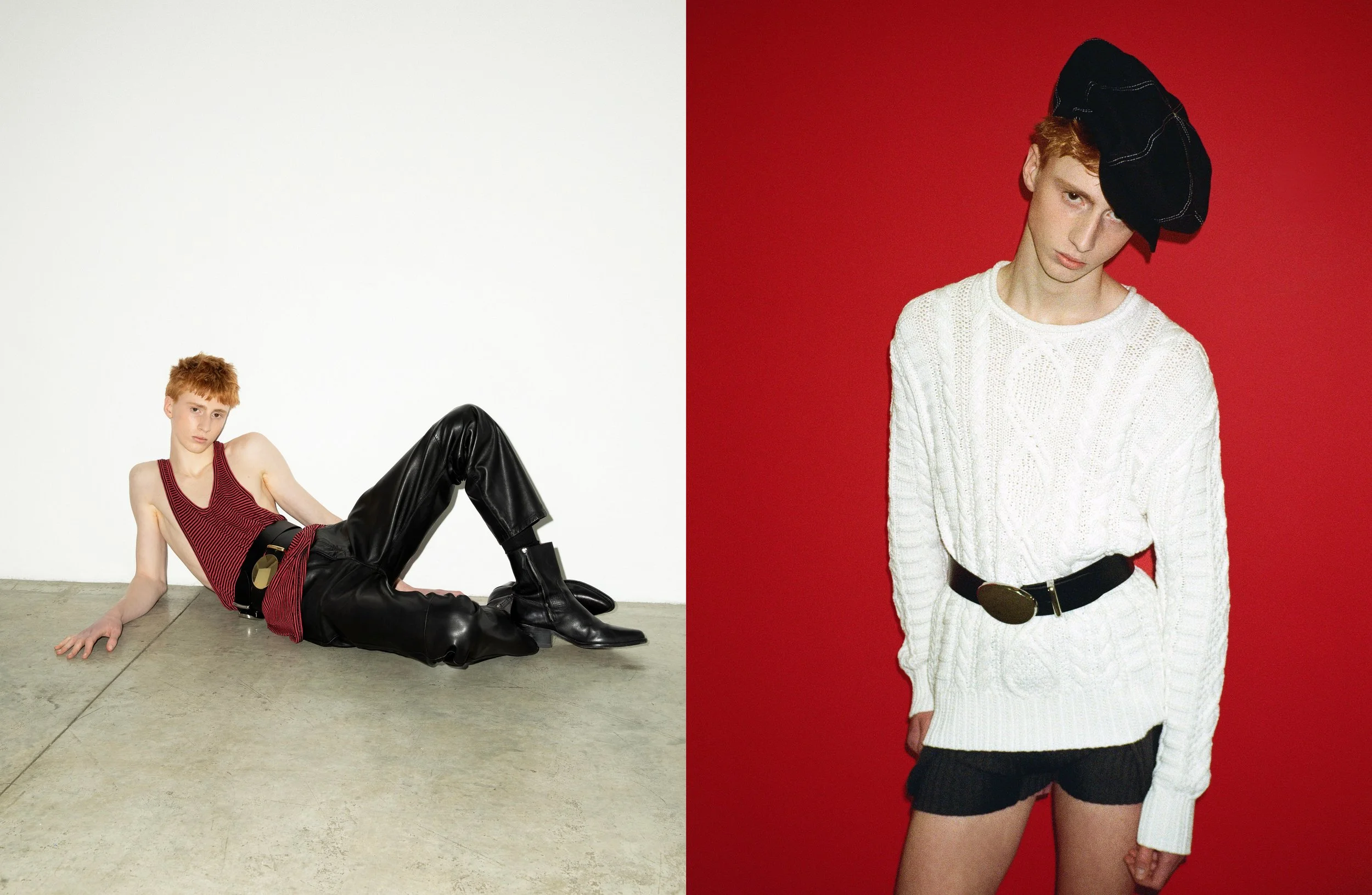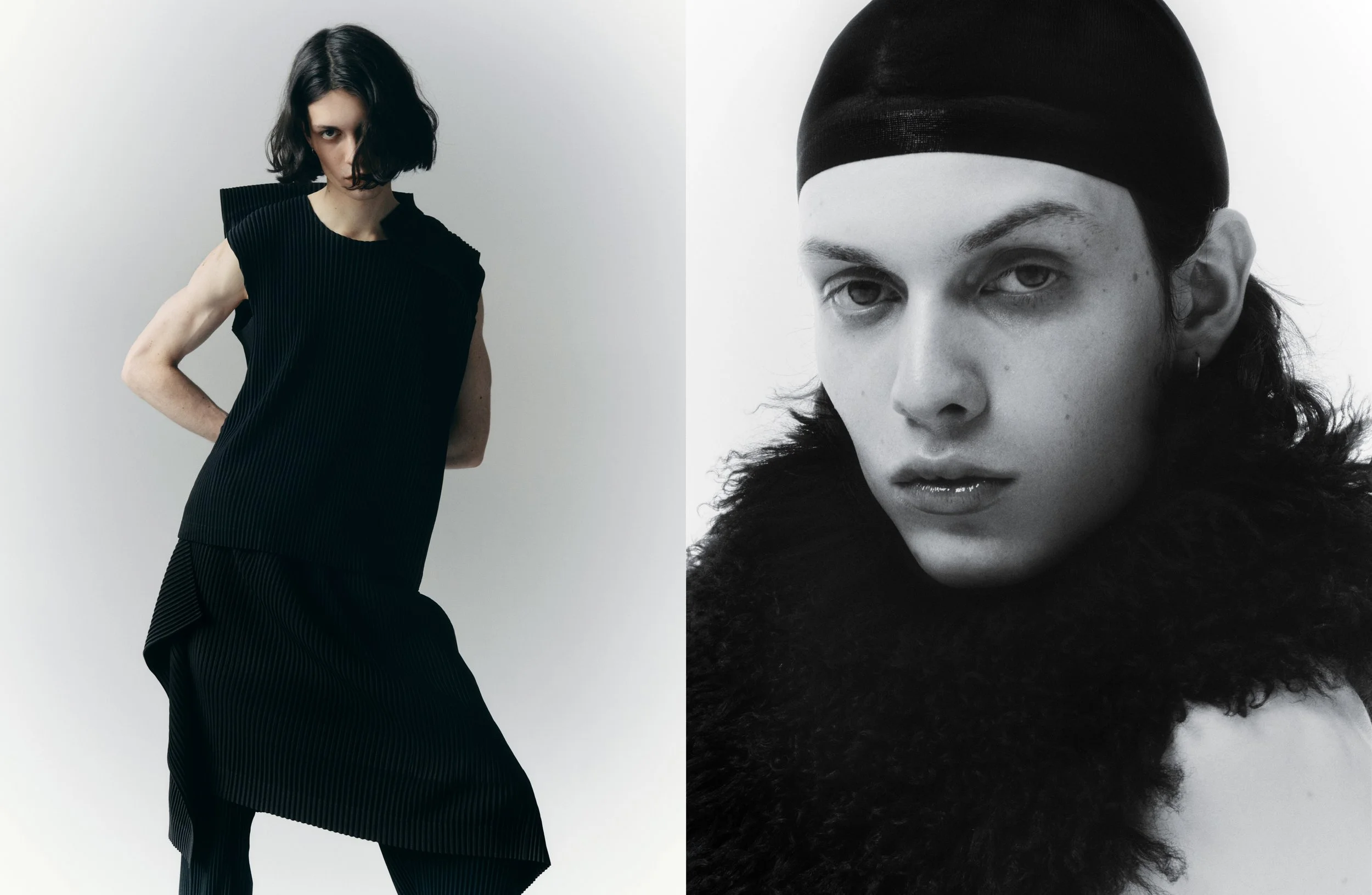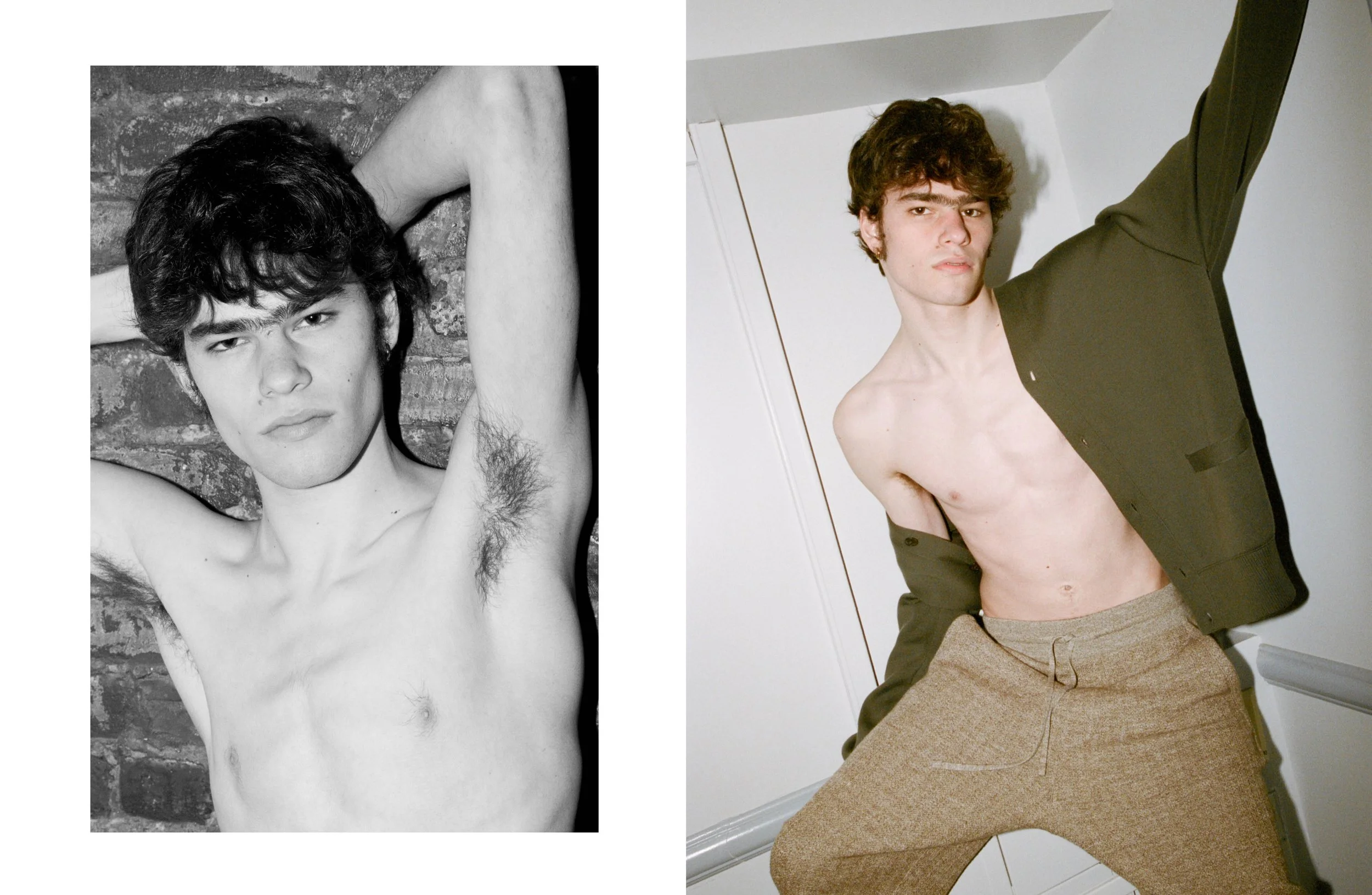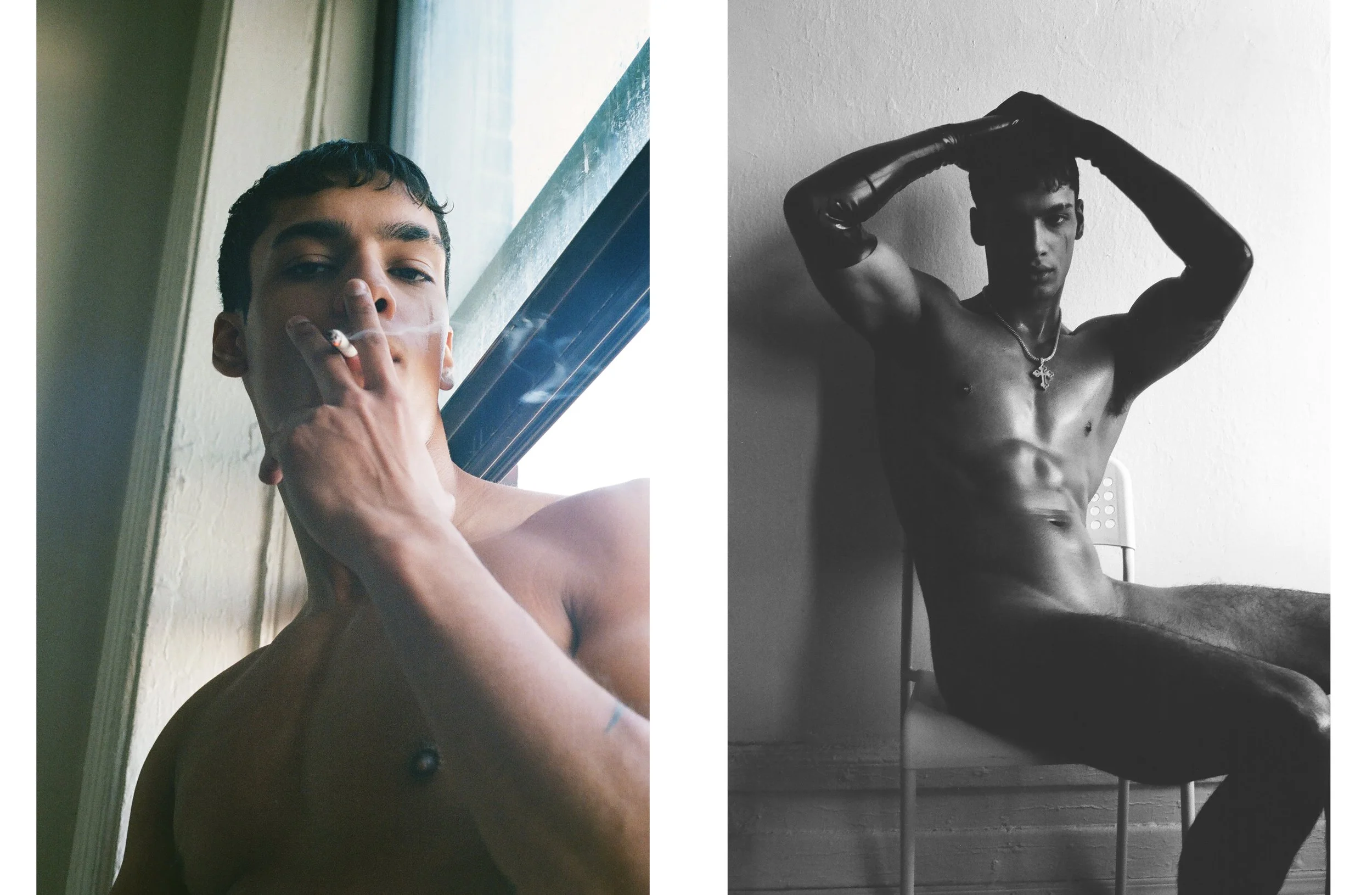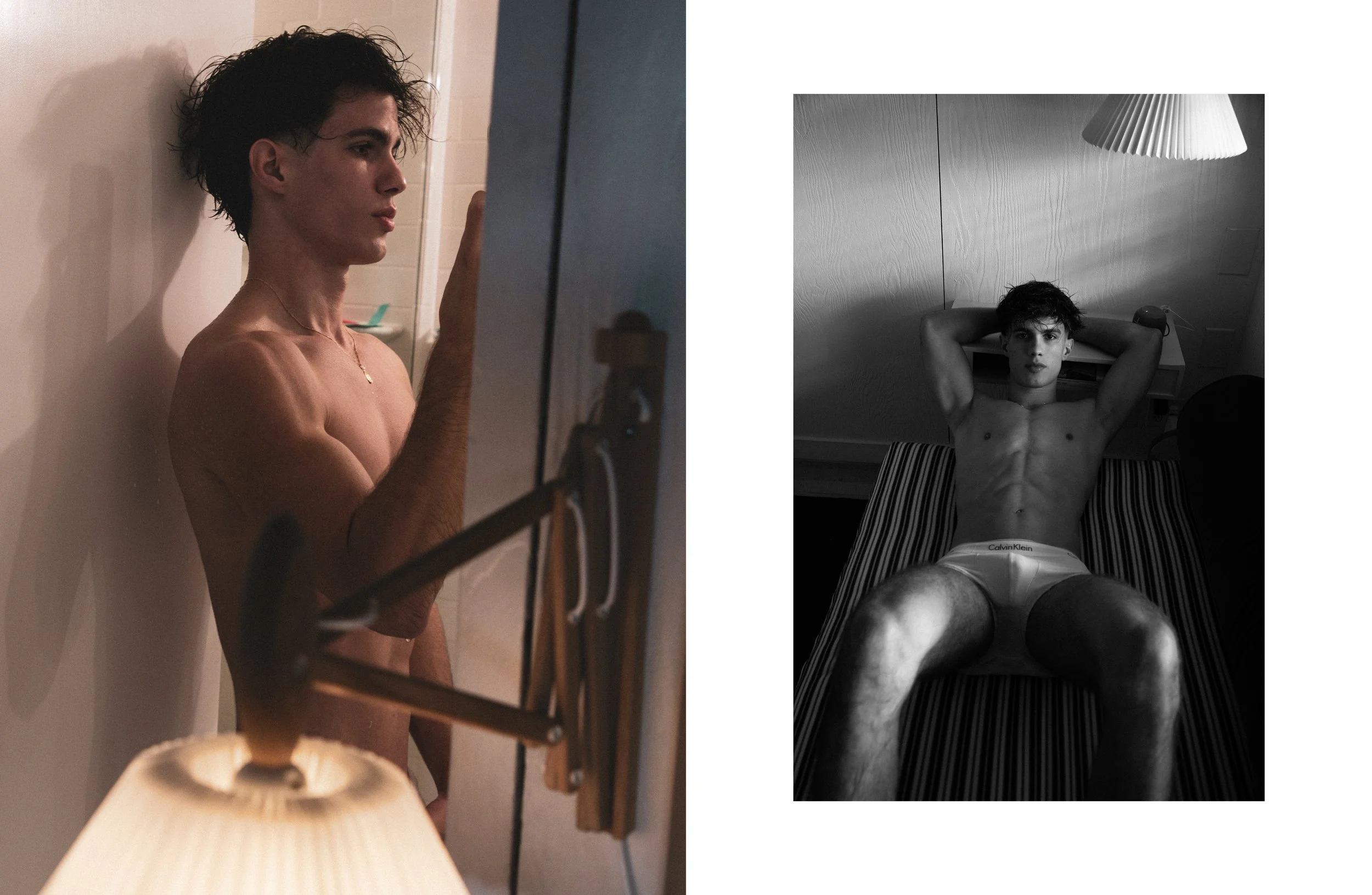WHEN BRIAN JORDAN ALVAREZ IS ON SCREEN, YOU’RE PROBABLY LAUGHING. WHETHER HE’S DIRECTING EMOTIONALLY FRAGILE CHARACTERS IN THE ENGLISH TEACHER OR HELPING M3GAN BLINK HER WAY INTO MEME IMMORTALITY, COMEDY IS AT THE HEART OF WHAT HE DOES. ALVAREZ MAY HAVE CUT HIS TEETH MAKING ABSURDIST SKETCHES WITH INSTAGRAM FILTERS AND ZERO BUDGET, BUT THAT SCRAPPY DIY SPIRIT DIDN’T STAY SMALL. NOW A FULL-FLEDGED ACTOR-SHOWRUNNER-COMEDIAN-DOLL WHISPERER, HE MOVES EFFORTLESSLY BETWEEN TONE AND FORMAT, FROM INDIE TO STUDIO, SATIRE TO SINCERITY. AT HIS ARTISTIC CORE IS THE BELIEF THAT COMEDY HITS HARDEST WHEN IT’S COMPLEX. WE SAT DOWN WITH ALVAREZ TO TALK ABOUT WHERE HUMOUR AND HEARTBREAK MEET, WHY THE EDIT IS HOLY GROUND, AND HOW COMING UP SCRAPPY MAKES THE TRANSITION TO THE BIG LEAGUES FEEL A LOT LESS INTIMIDATING.
Tank top Dsquared2, shorts stylist’s own, shoes vintage
I was researching you and going through your digital footprint, which is quite extensive. Is there something about that kind of scrappy creation, just grabbing your phone and producing something, that gives you something a polished set or script never could?
What it gives me is a lot of comfort around big, expensive cameras and lights, because it’s the same art form. I think some people come directly into the big leagues, and I imagine that would feel intimidating. But I feel very lucky with how comfortable I feel directing and acting on a big set, because it’s just a bigger version of the same art form. If you’re making a comedy, you still have to be like, “That line needs to be funny right now.” That person we’re seeing on camera just needs to be funny. You can casually and joyously work toward that. That’s the same thing I was doing in my sketches, with Instagram filters—just making something funny. It sort of lowers the stress.
Sweater Loro Piana, shoes Miu Miu, shirt & shorts stylist’s own
Do you find there’s a difference when working with someone who’s had that scrappy, do-it-yourself experience, versus someone who came up through a more traditional path?
Yeah. I think there are benefits to both paths. I only know my own way, but I relate a lot to people who came up in a scrappy way. Jonathan Krisel, who directs a lot of our episodes of English Teacher, comes from the same school of thought. He made things with his friends, then he made Portlandia—they had very little money, but just focused on making the funniest thing they could. So, when we’re on set, it’s very simpatico. We're just trying to get the funniest thing possible.
Also, for some reason, he and I live more in the edit than others I’ve seen. We're used to saying, “All I need is this little piece for the edit.” So, I don’t need to get this wide shot eight times. A lot of the time, we even start with close-ups, because that’s where the magic is. Traditionally, people start with wide shots and work in, and we still do that sometimes for technical reasons like lighting, but we want to get the magic of the performances. 88% of the scene plays in micro expressions and subtle line readings. What’s relieving is that in the edit, you only have to get it once. A lot of the funniest lines in our show were only said that way once. So, coming up that way really gave me a gift.
Left Jacket stylist’s own, shirt & shorts Dior Men
How do you value improv and comedy of the moment versus scripted material?
Our show is very much both. We start with really strong scripts, we work on them a lot. At our best, even shot word-for-word, the script would be excellent and funny. But when we get to set, we ask, “How do we make this funnier right now?” We do a lot of dancing on top of the script. Often on set, we breathe new life into a scene by going, “What’s the main thing happening here?” Then we might do a version that’s more condensed or simpler, because in the edit, you're often cutting time out to distil it. Sometimes, the funniest version is also the simplest version. And having that stripped-down version that still communicates the story point clearly can be beneficial.
Left Tank top Calvin Klein
Right Tank top Dsquared2, shorts stylist’s own
Your work is incredibly funny, but it also often carries a tender message. Is your goal to make people laugh, or is it to use comedy as a Trojan horse for something more complex?
[Laughs] I wouldn’t call it a Trojan horse, but I would say the best things, many of them, are both deeply funny and emotionally rich. That duality also makes the comedy funnier. When your comedy is grounded in emotional depth, feet on the ground, head in the sky, as they say, it becomes more powerful. Like Amadeus—have you seen it? It’s this Oscar-winning drama, but it’s also a hard comedy. That’s what I aim for. I want to make you laugh harder than you’ve ever laughed, but I also want the emotional depth and story quality of an Oscar-winning film.
Would you classify your work simply as comedy, or do you believe in genres at all?
The show we’re making now is a comedy. But I’m interested in making more movies, and I don’t think my next movie would be a full-out comedy like English Teacher. It would have to be both. Like Parasite. It’s very funny, you laugh a lot, but the drama is meaningful. Is it a comedy? Maybe. Or Poor Things, fully funny and fully dramatic. That’s the dream. Television can feel slightly more genre-bound than film, in my experience. But I aim to make things that contain so much of both, you don’t even know what to call them. Still, English Teacher is a comedy, and that’s what people love about it; it really wants to make you laugh.
Tank top Dsquared2, shorts stylist’s own, shoes vintage
I binged the first season and certainly laughed a lot. But I was also hooked by the emotional elements. Do you try to strike that balance deliberately?
Totally. I always want more of the dramatic stuff, but we have to remind ourselves, “How do we make this scene funnier?” so it doesn’t go too dramatic. They’re not diametrically opposed. Something can be equally tragic and dramatic while still being incredibly fun. That’s what we tried to do with the drama scenes. We’d cut them with a joke, so you get the best of both worlds.
Let’s talk about M3GAN 2.0. I’m not sure if the first film was intended to be so campy, but it seems like the sequel is leaning into it. This is your first major studio horror film, right? How do you shift into that darker tone while keeping your comedic rhythm?
Yeah, this is my first major studio horror film. I play one of the more comedic roles in M3GAN 2.0, but I have serious stuff too. My pitch usually has some comedy to it. In the first M3GAN, my character was also sort of funny. The magic of those movies is in the writing and direction. Gerard Johnstone, who directs them, has this very subtle ability to balance tone. That line from the first movie walked scary, serious, but also funny and self-aware, which is a huge part of why it was so successful. Gerard’s sensibility makes that possible. He has this dry humour and subtle wit. It’s a real achievement. The second film has even more of that, plus this huge action element. The sets were wild. It was like being in a theme park. I couldn’t believe what they built.
Left Shirt & shorts stylist’s own, shoes Miu Miu
Right Tank top Calvin Klein, pants Miu Miu
Did you predict the public’s reaction to the first movie at all? I think M3GAN is the Chucky or the Freddie of the 2020s…
Yeah, because I would watch when they worked with the doll on her close-ups. A lot of it is a literal puppet-slash-robot, right? Mostly a puppet but behaving like a robot. It’s an animated inanimate object, one might say. Gerard would spend so much time directing the doll’s close-ups. It’s kind of like in the Alien movies. Everything about it is good, Sigourney Weaver’s acting is amazing, Ridley Scott’s direction, James Cameron’s direction: all amazing. But also, that creature, that alien, is just so incredible that you’re like, “This is a hit. What is that thing?” And M3GAN is like that, too. She’s captivating. Gerard would direct her so subtly and get laughs with these little movements. He’d tilt her head down, blink, then look to the side and blink again. It’s like he’s acting through her. It’s a subtle performance he creates. And I care a lot about acting. We care about it on my show, too. So many great things come from taking time to create special performances.
You just mentioned something interesting, how important acting is to the success and quality of a project. How do you quantify yourself? Are you a writer first?
I come at it all through the lens of acting. That’s primarily what I am. But I’ve had times when I tried to focus more exclusively on acting, and my filmmaking abilities and expressive, creative self always ended up leading me back to making something again. I’ve had to accept that over the years. My best friends will tell you, every couple of years, I say, “I’m just going to focus on auditions, I’m going to focus on acting.” But at this point, it’s funny—like, “Brian, you’re the creator and showrunner of this show that people love,” so to now say, “but I’m just an actor”—I must admit that’s not quite true. But I am primarily an actor. I went to acting school; I never went to film school. But I was making movies growing up. My mom and dad had a Handycam, and I would edit movies on my mom’s iMac.
Interview by Pedro Vasconcelos
Photography by JJ Geiger
Fashion by Yuval Ozery
Grooming by Diana Schmidtke
Set design by Samuel Keamy-Minor


